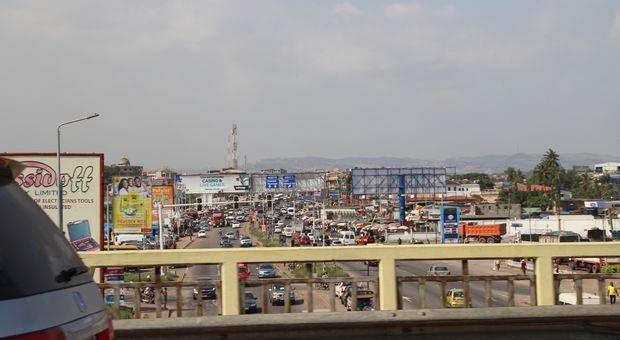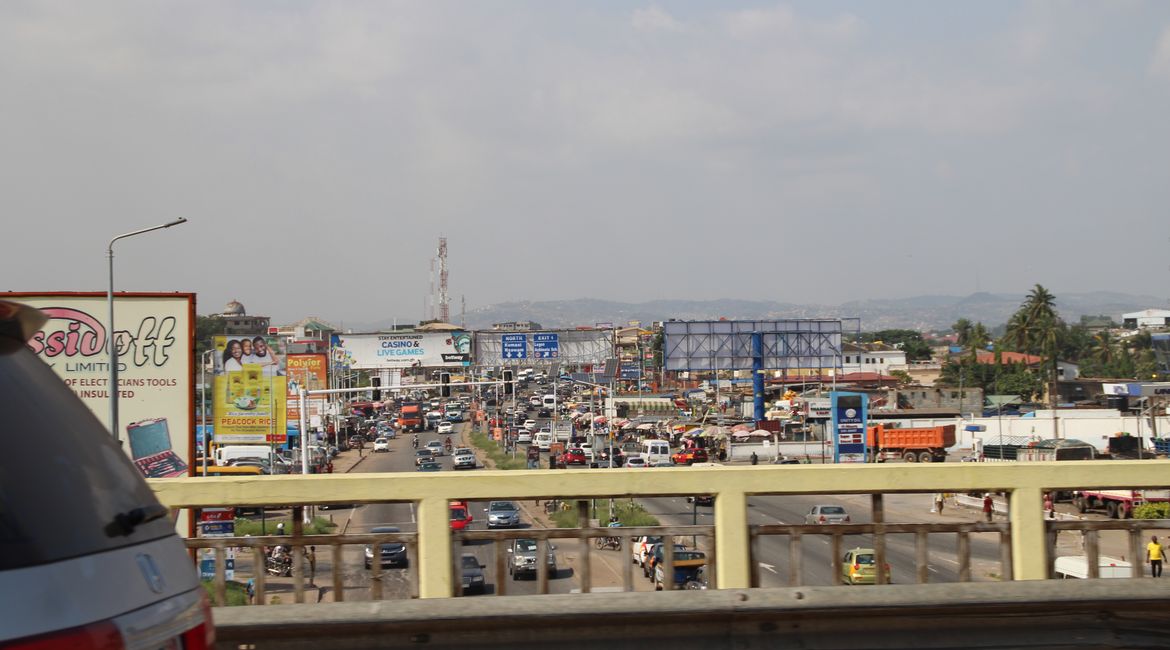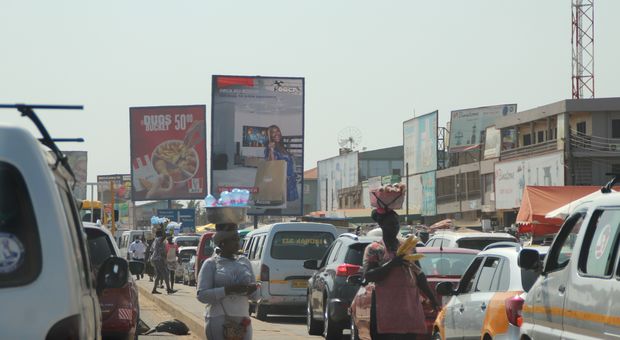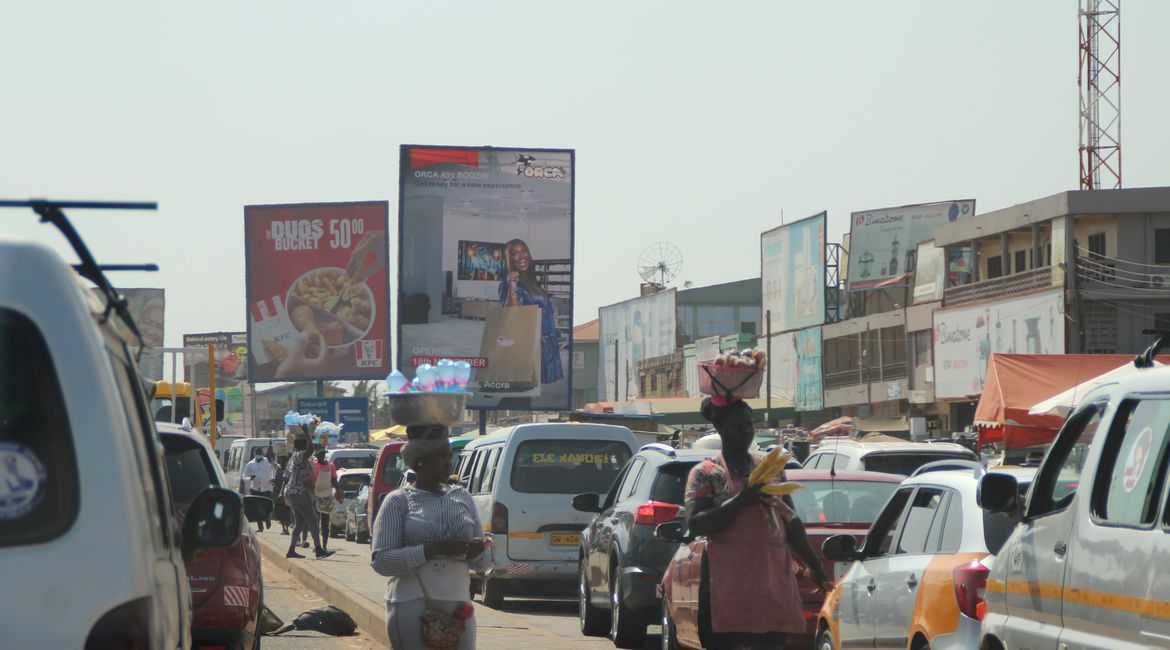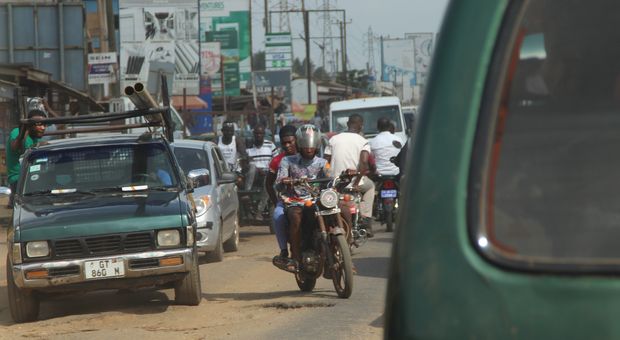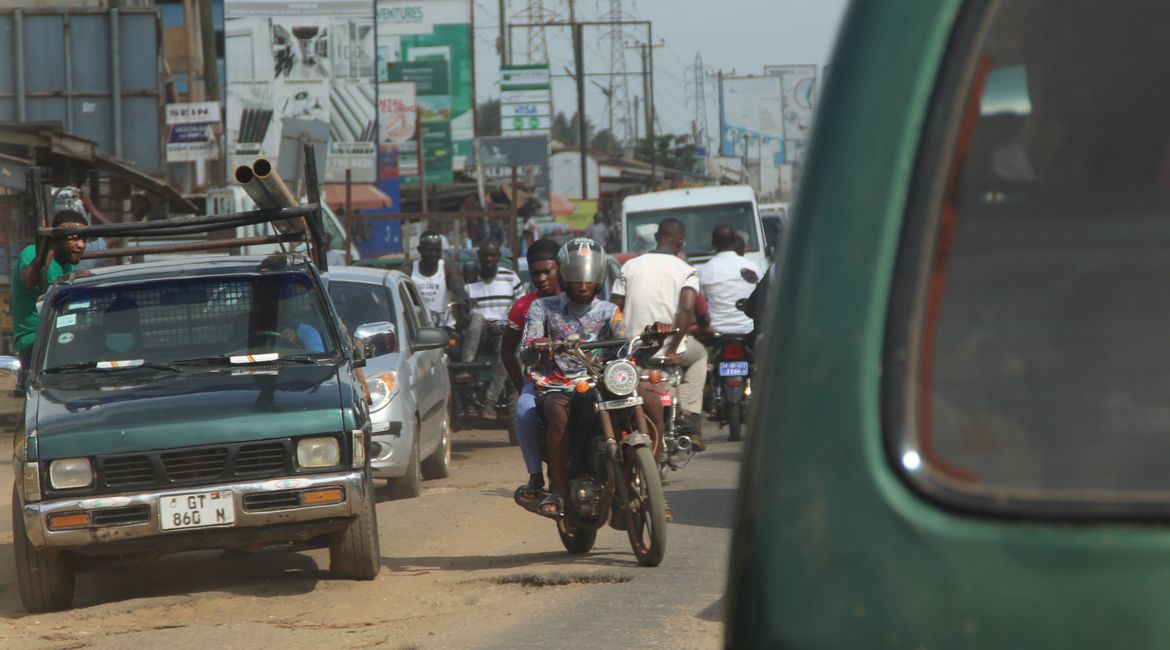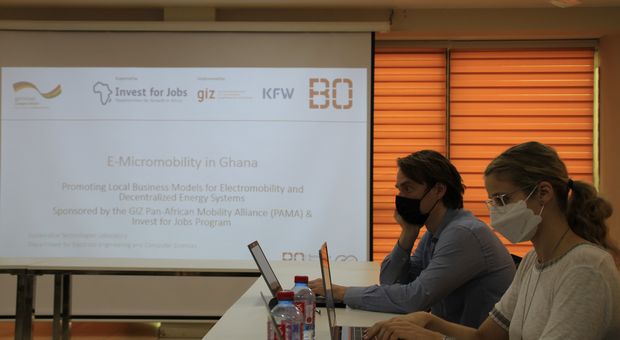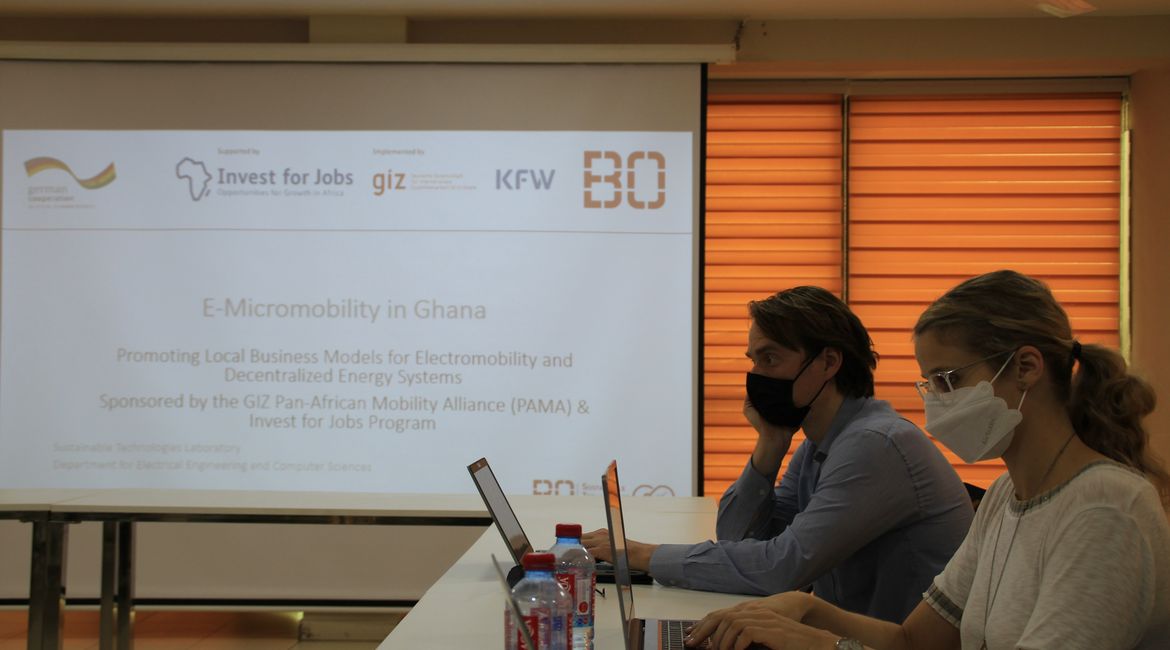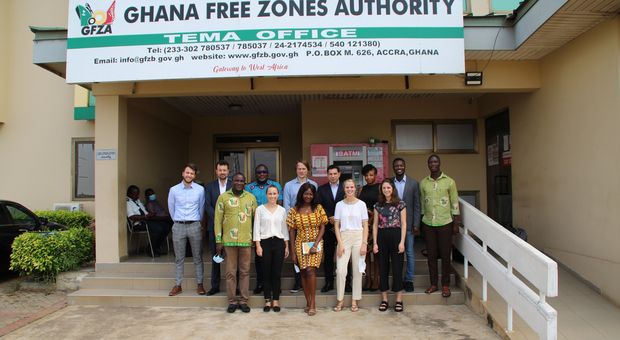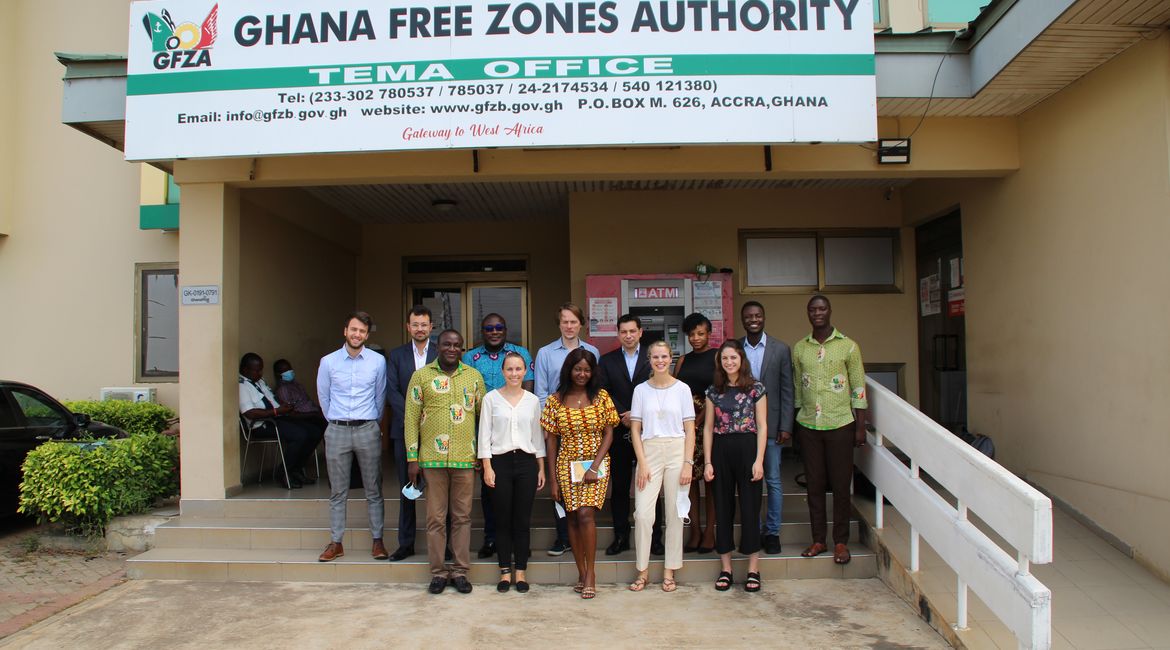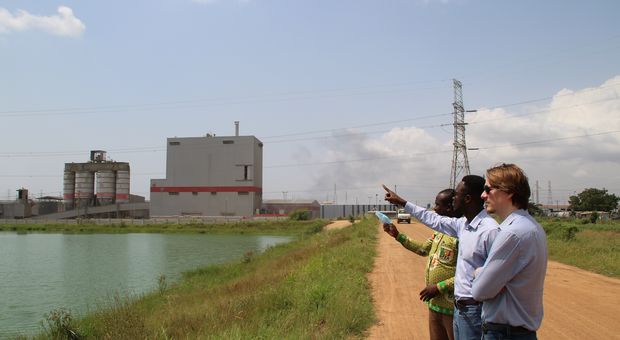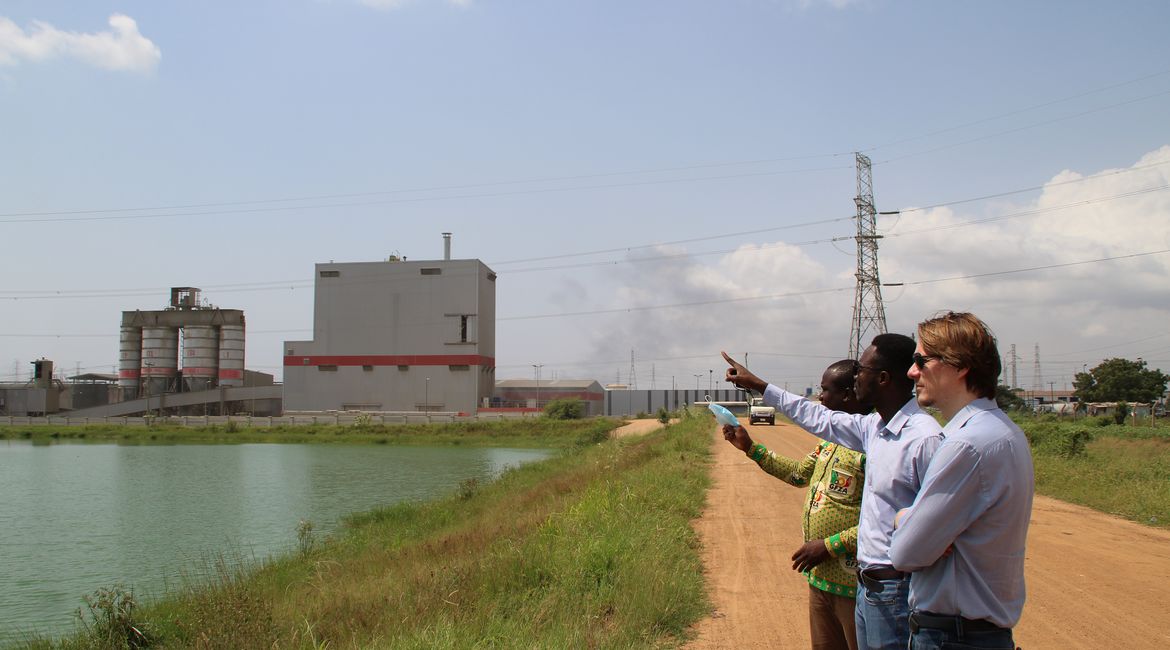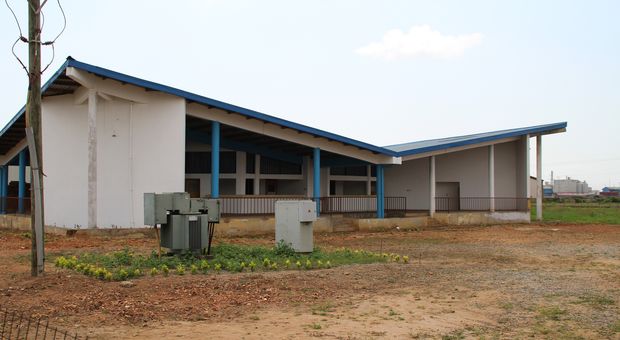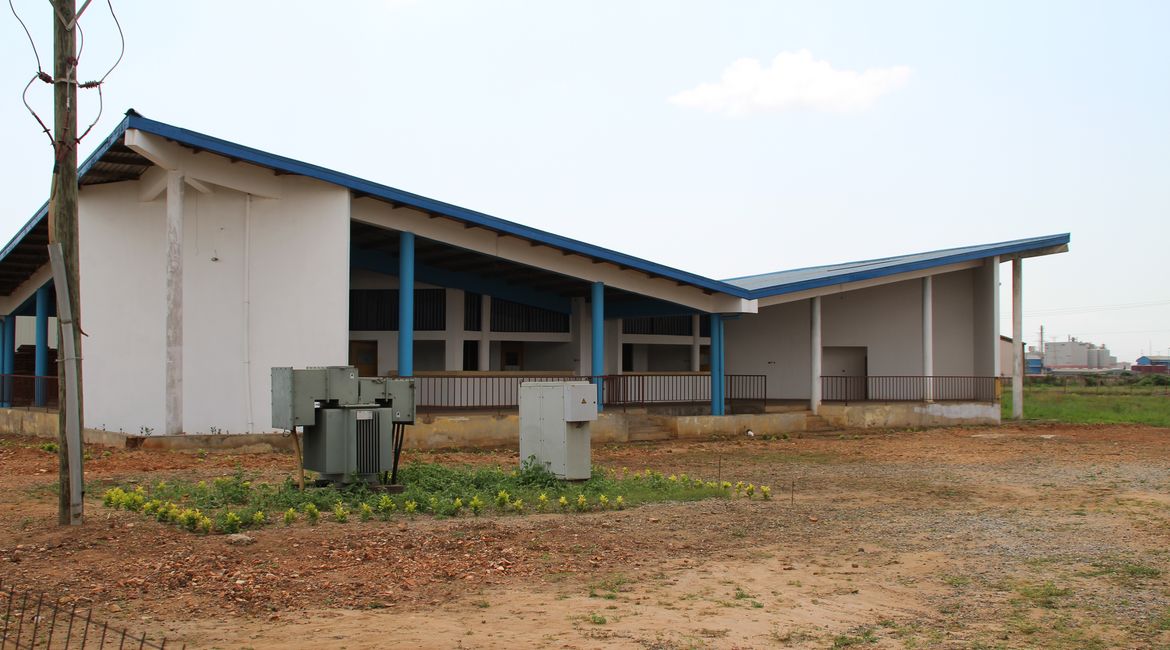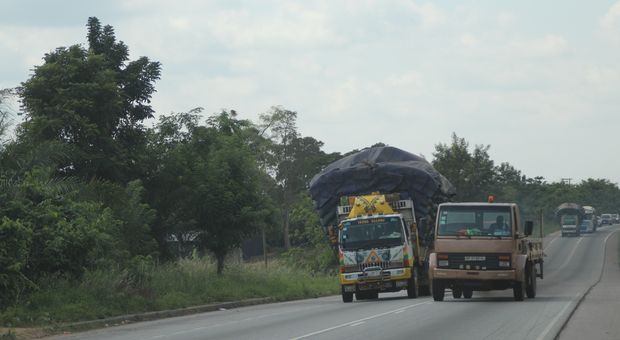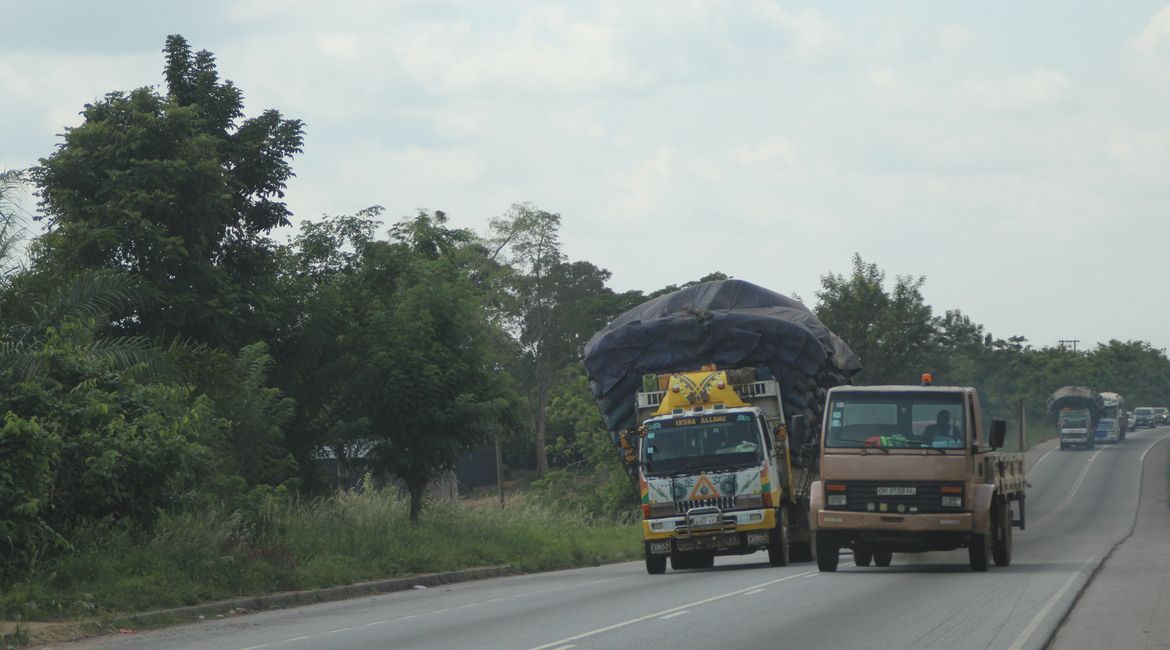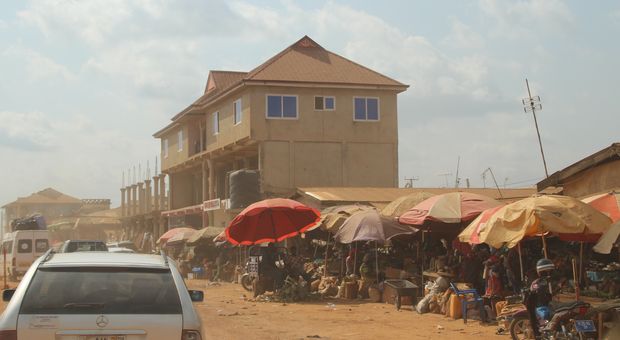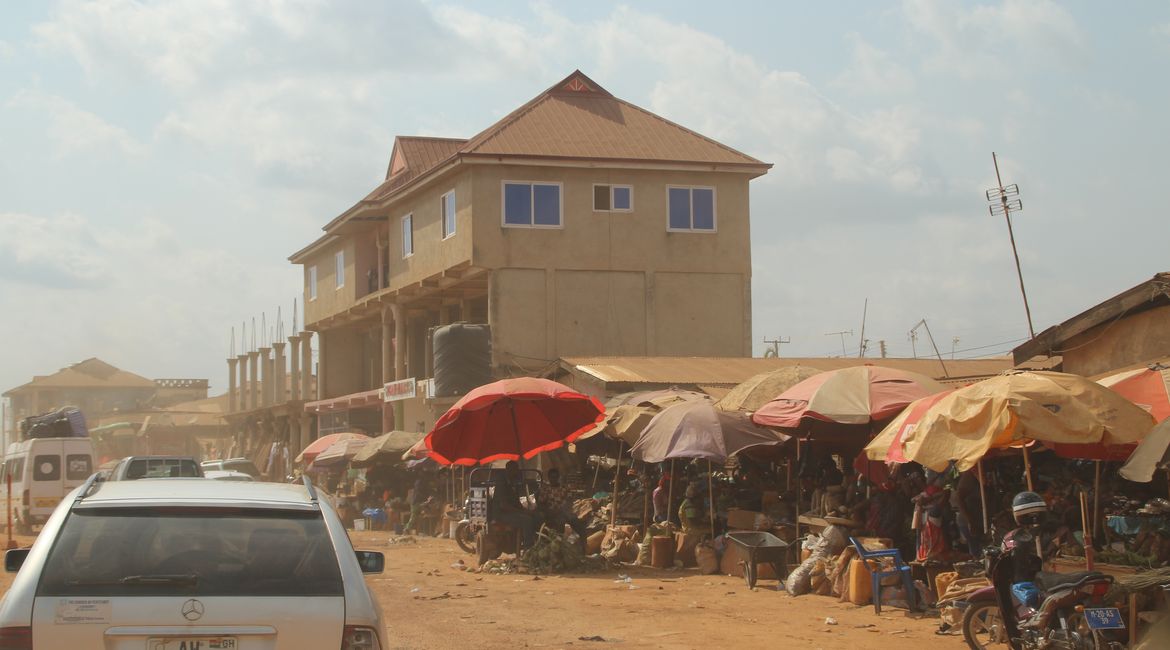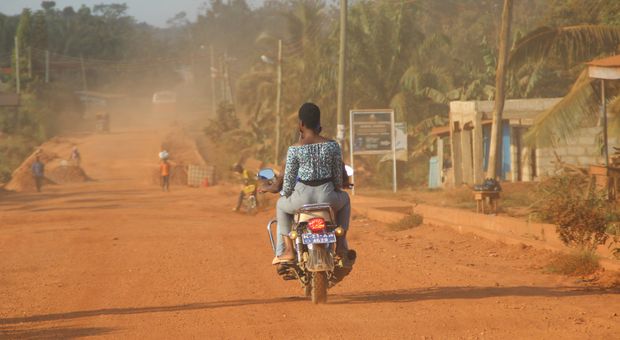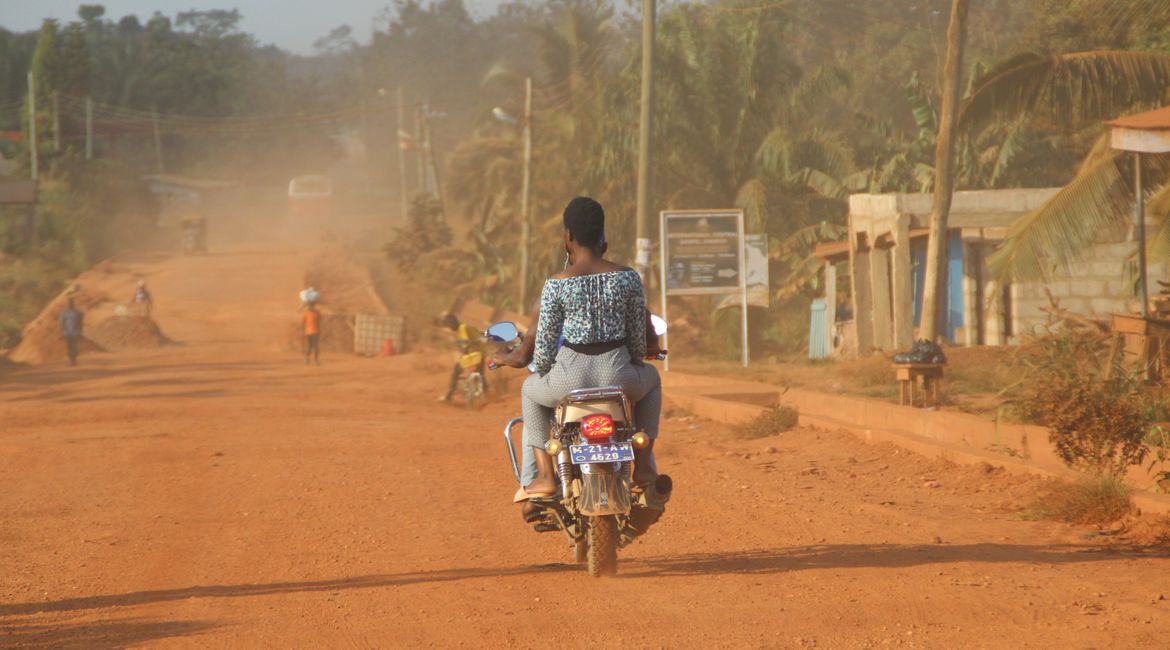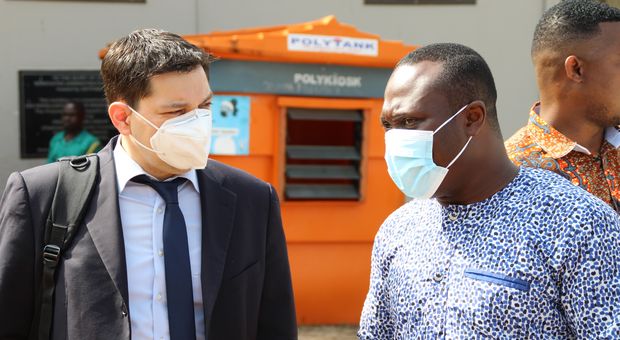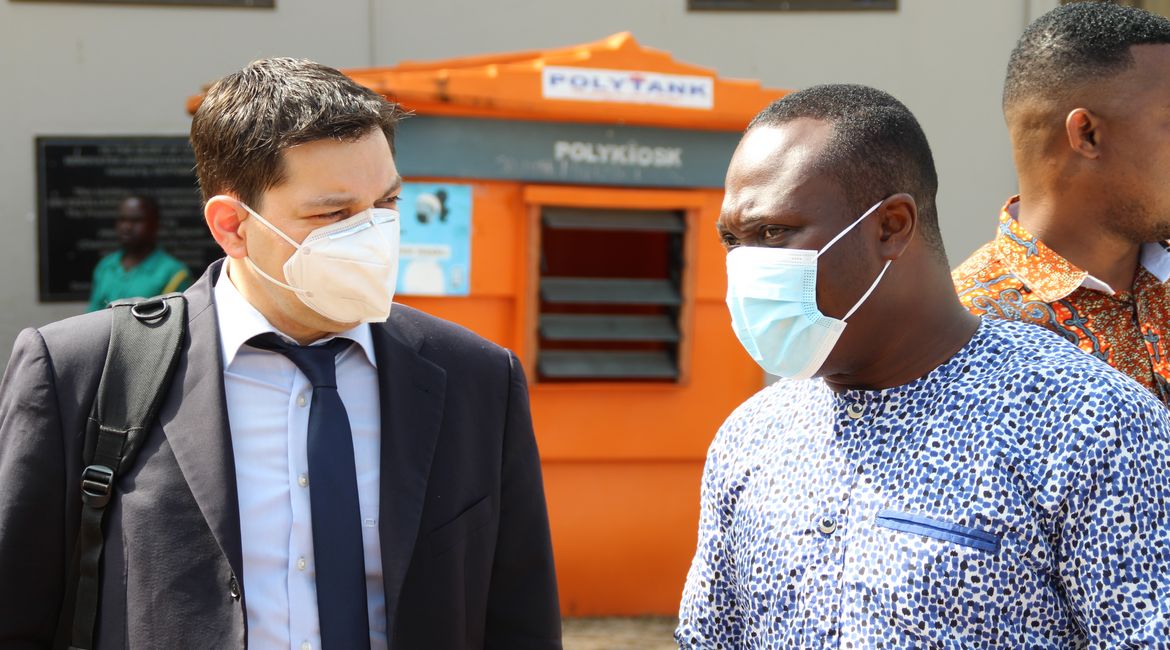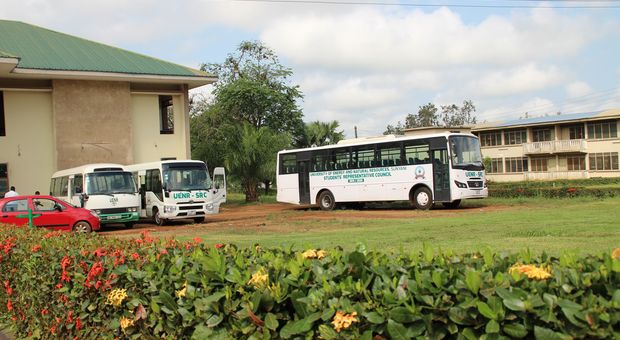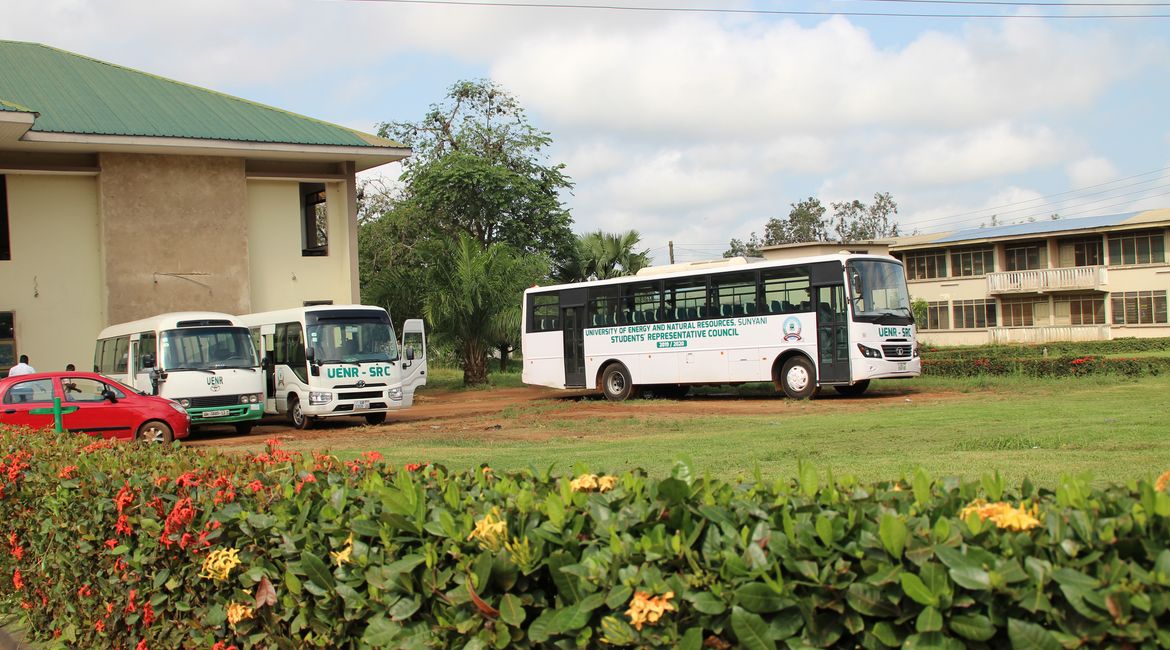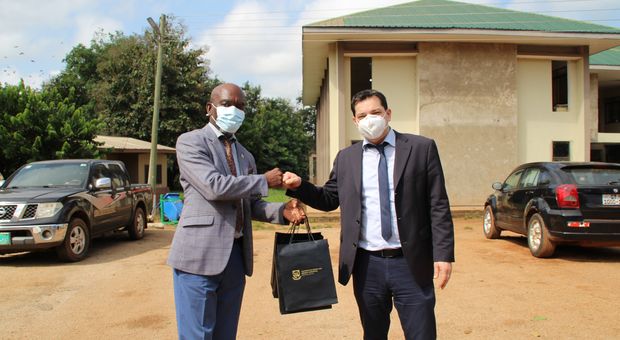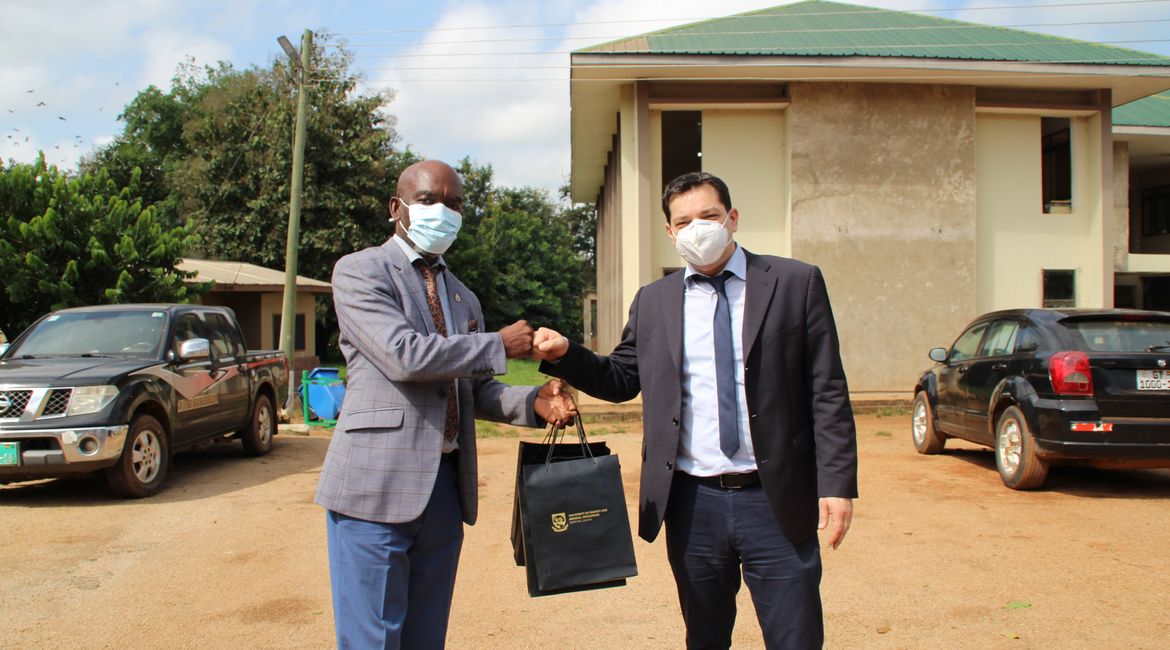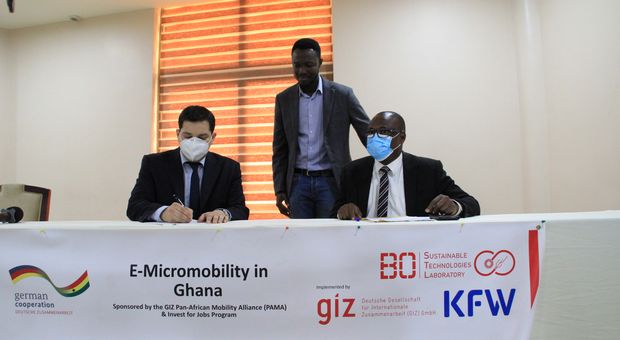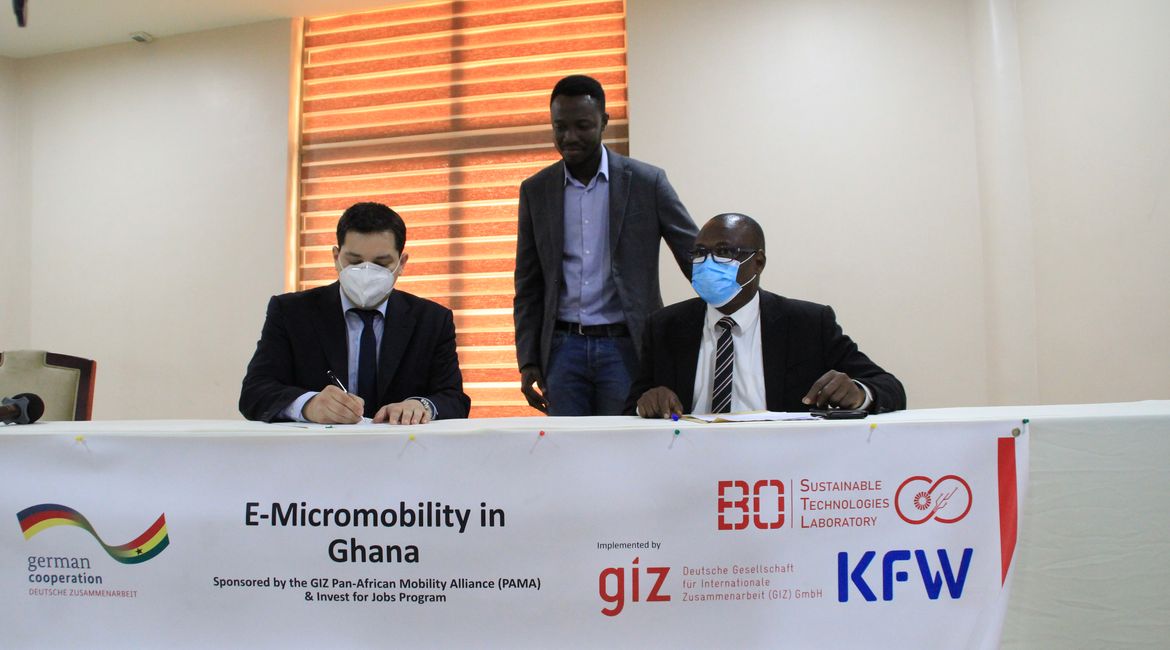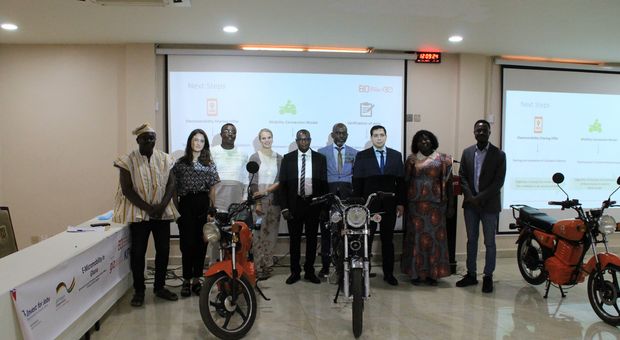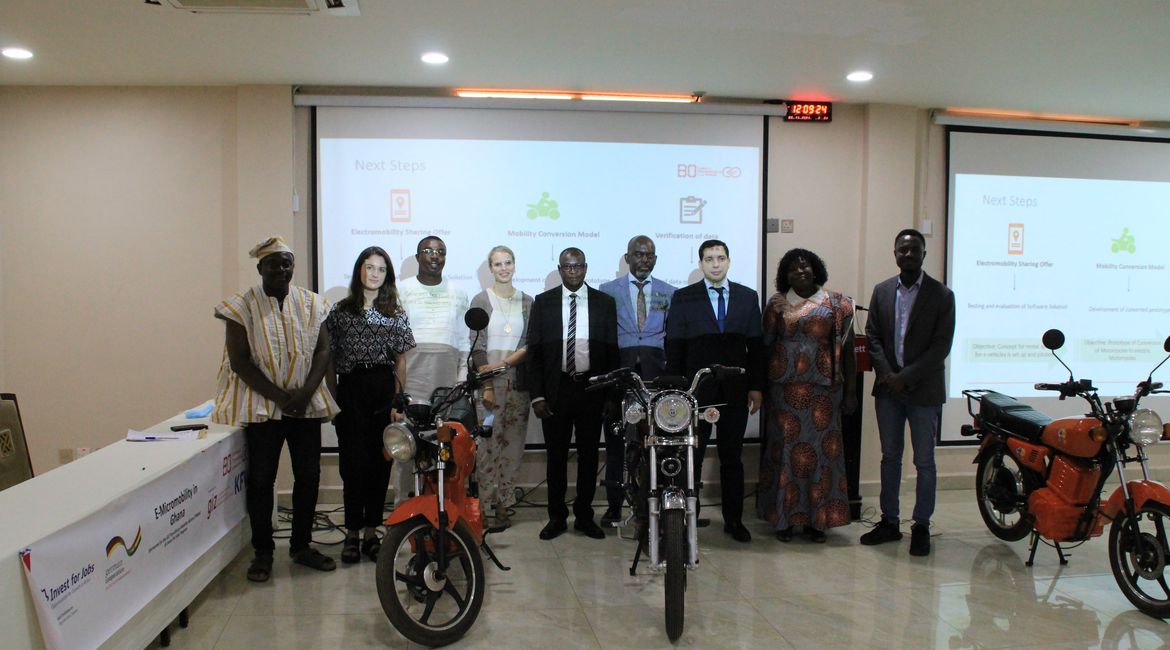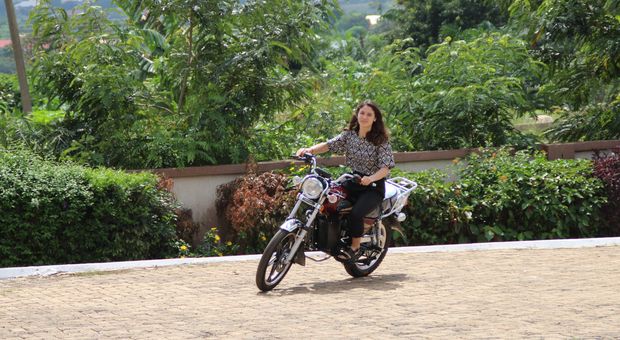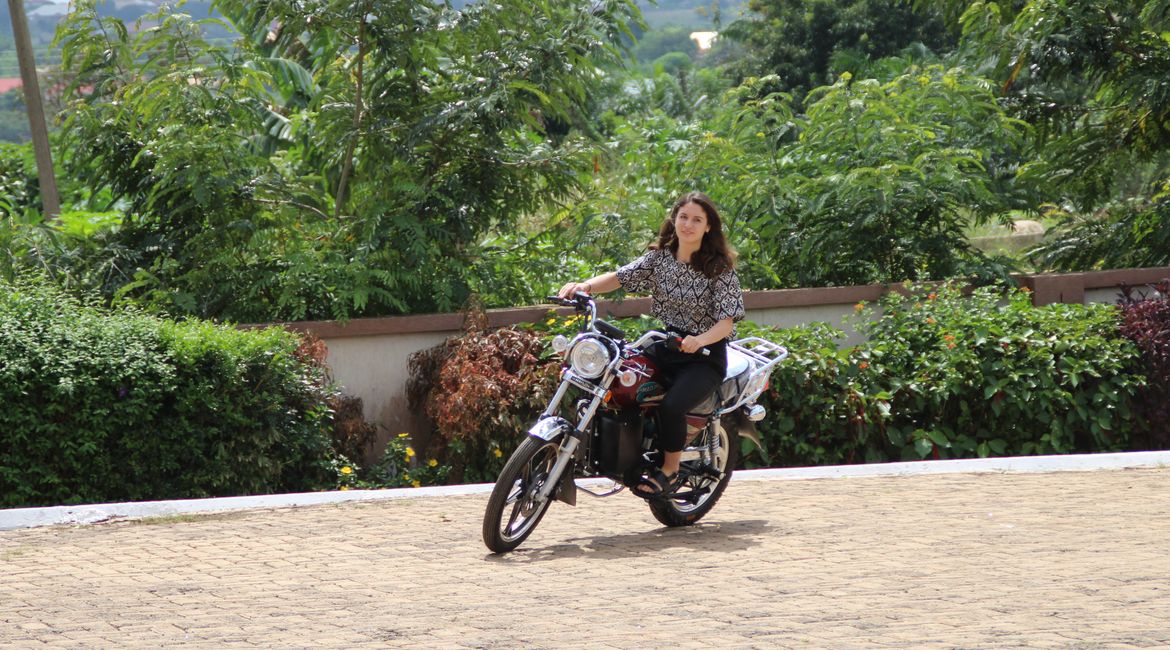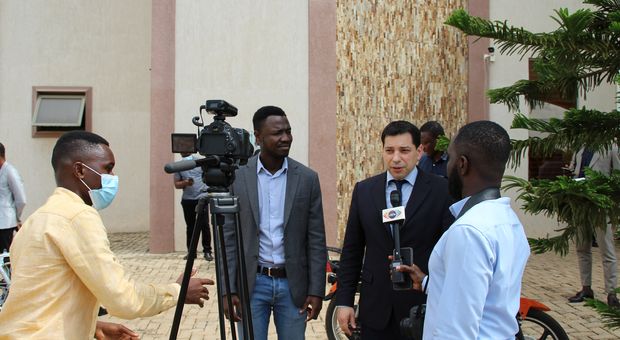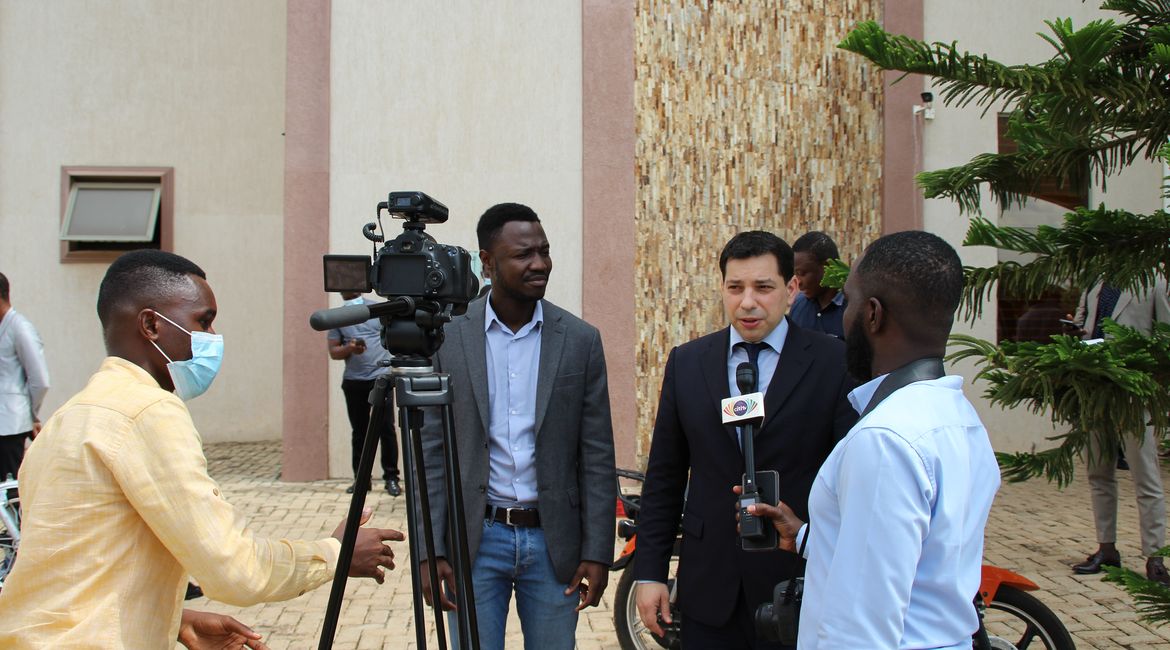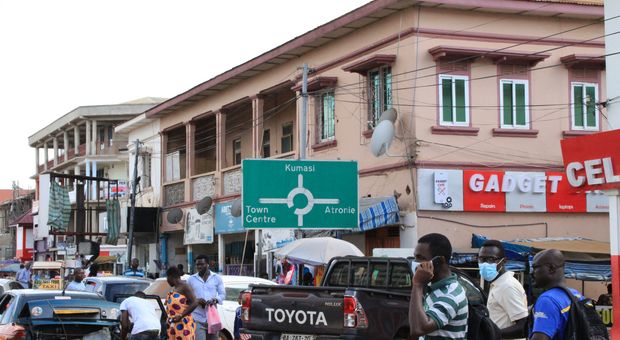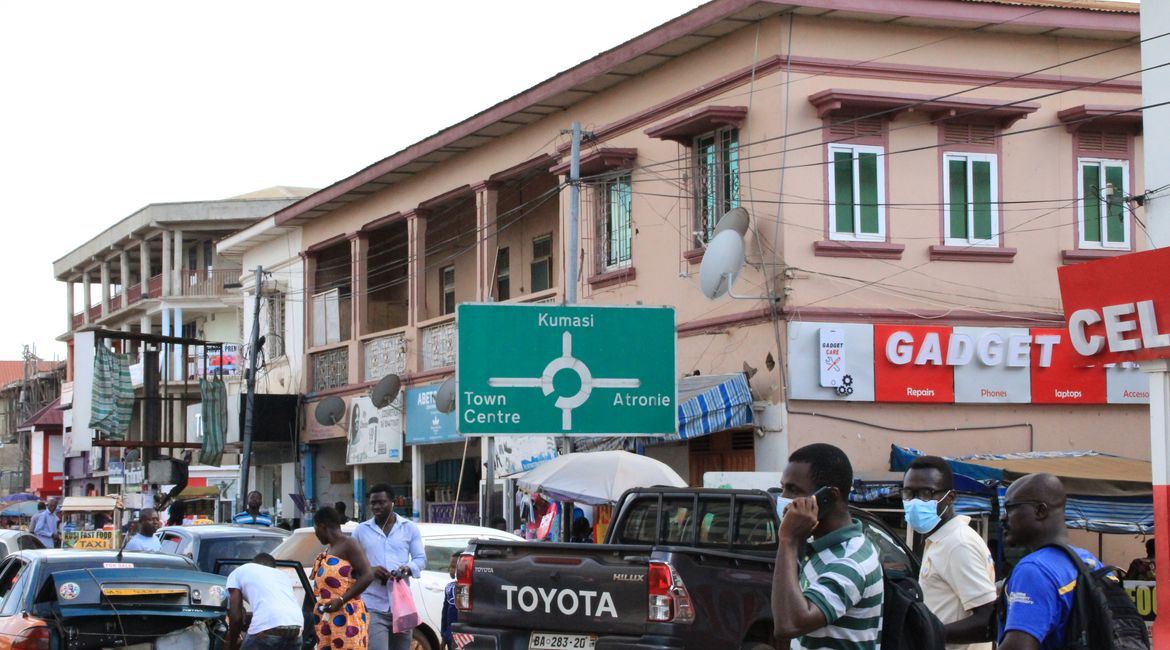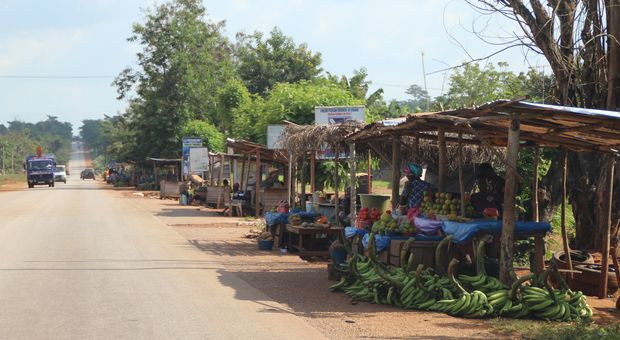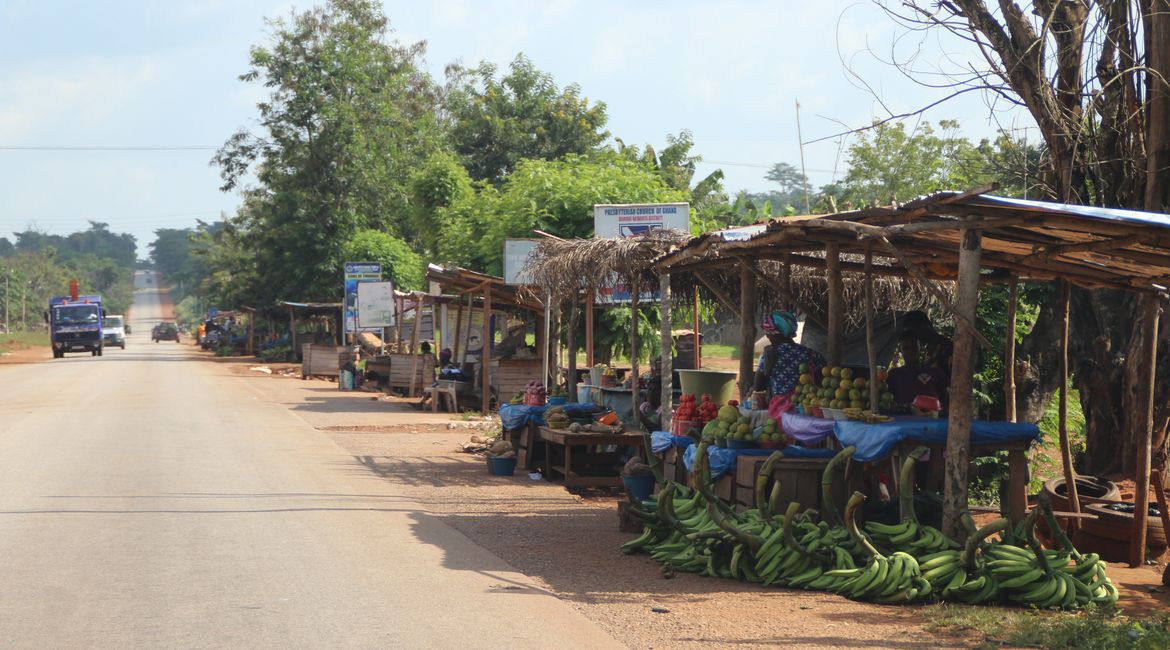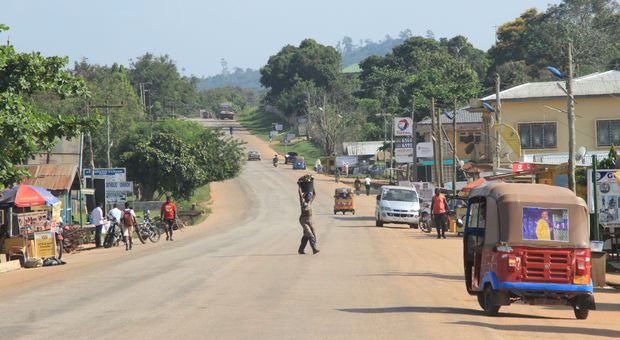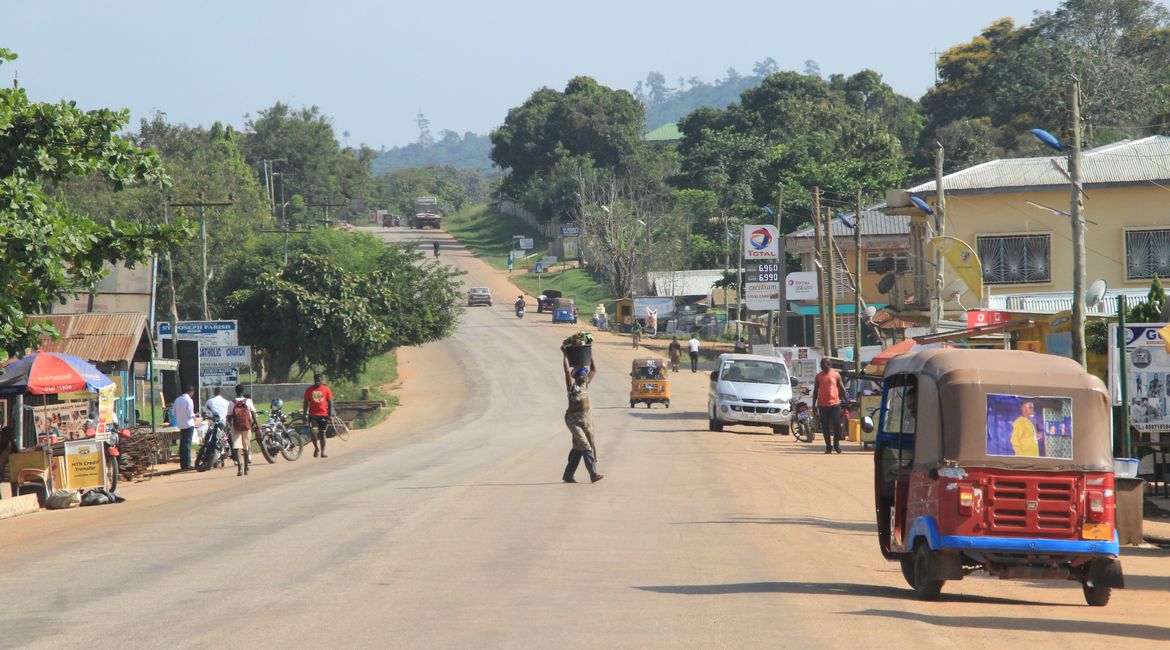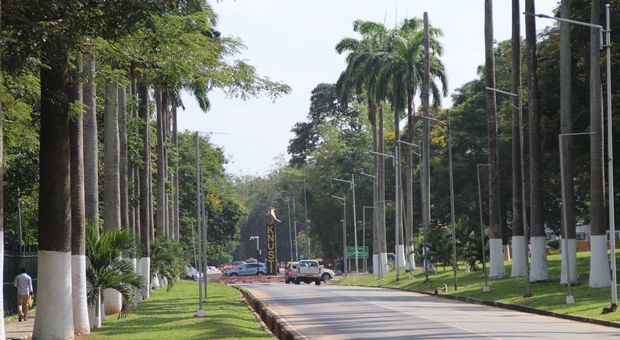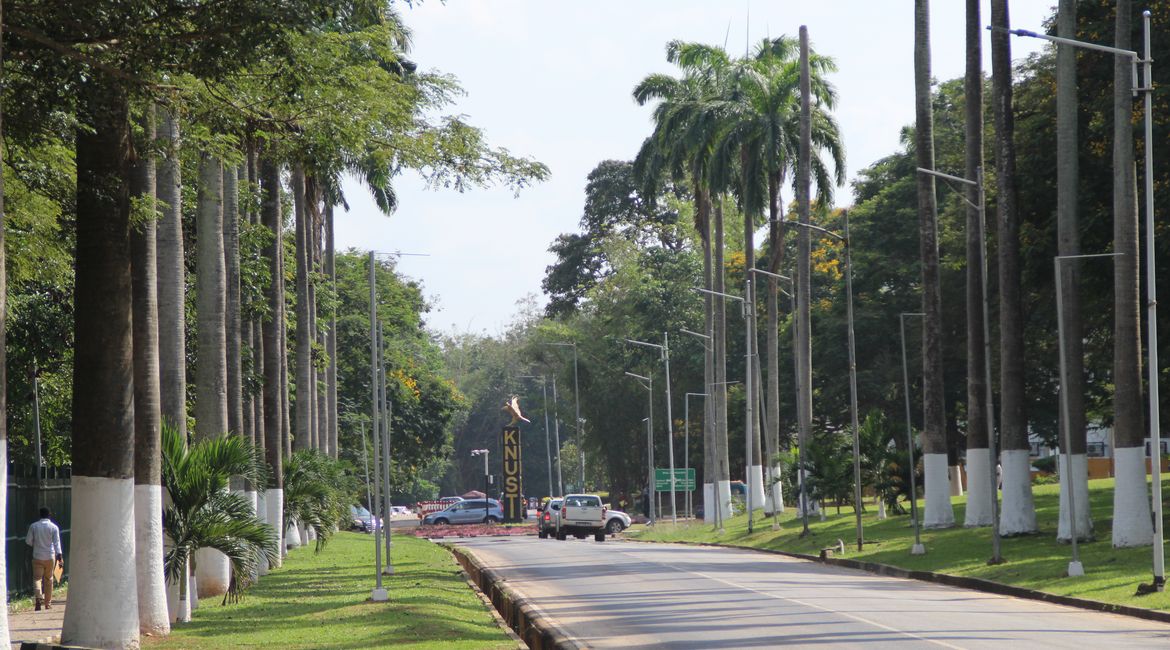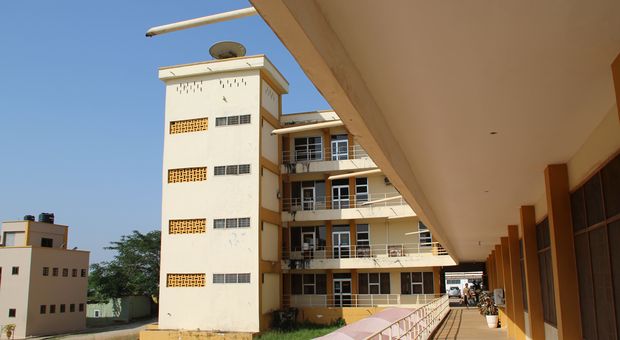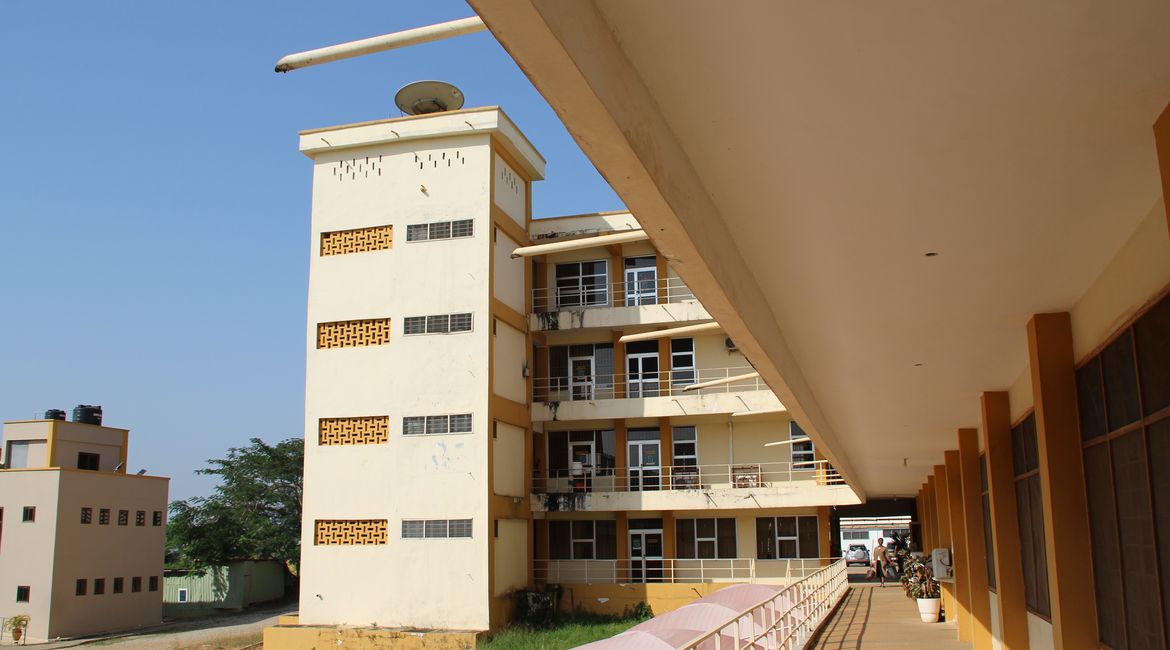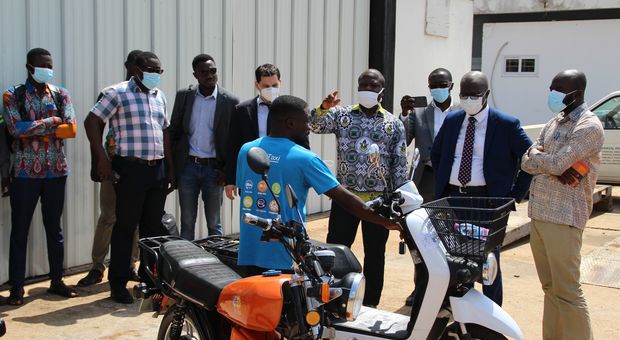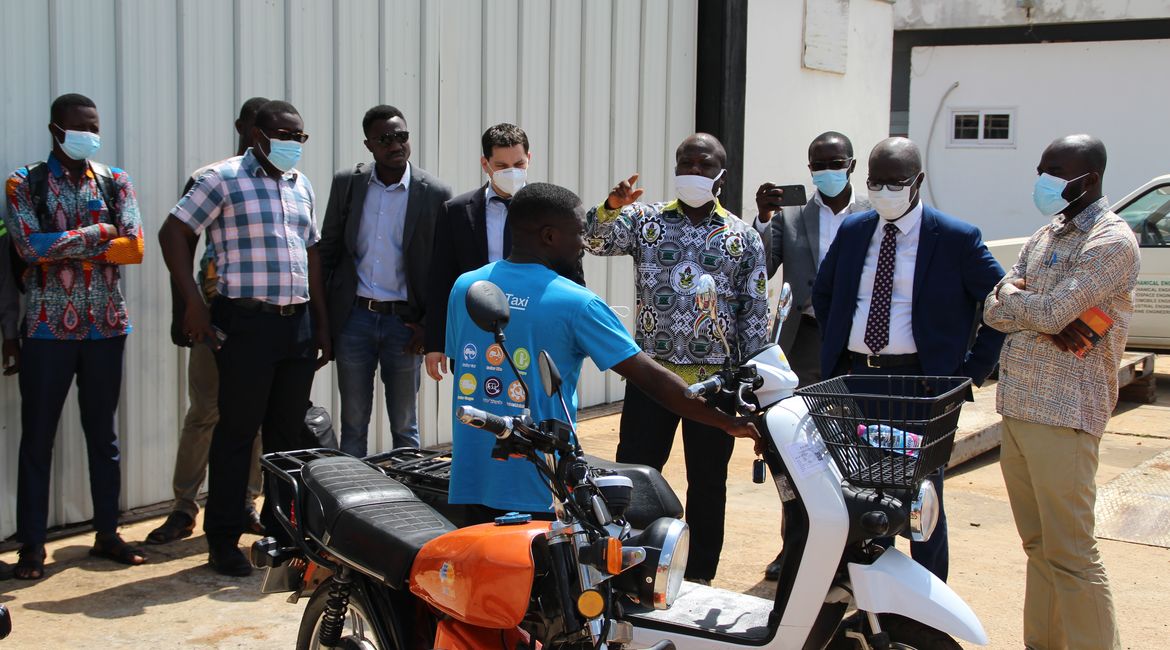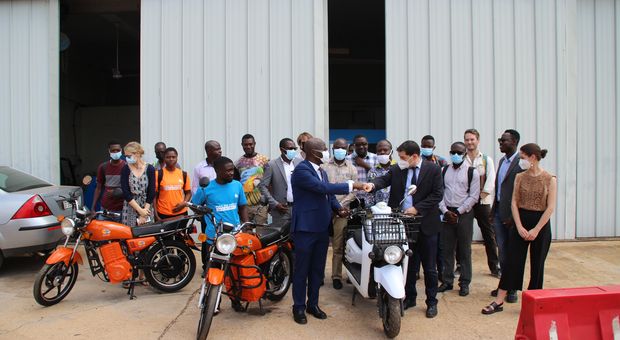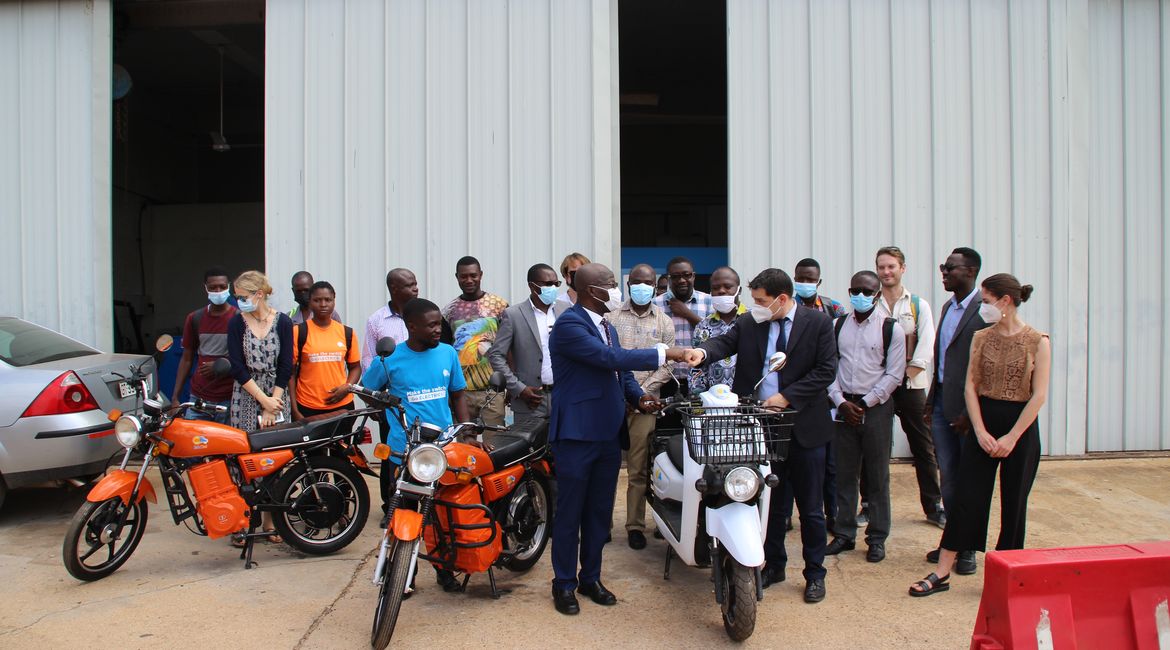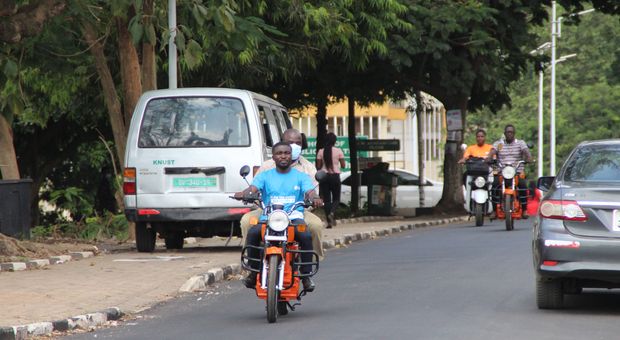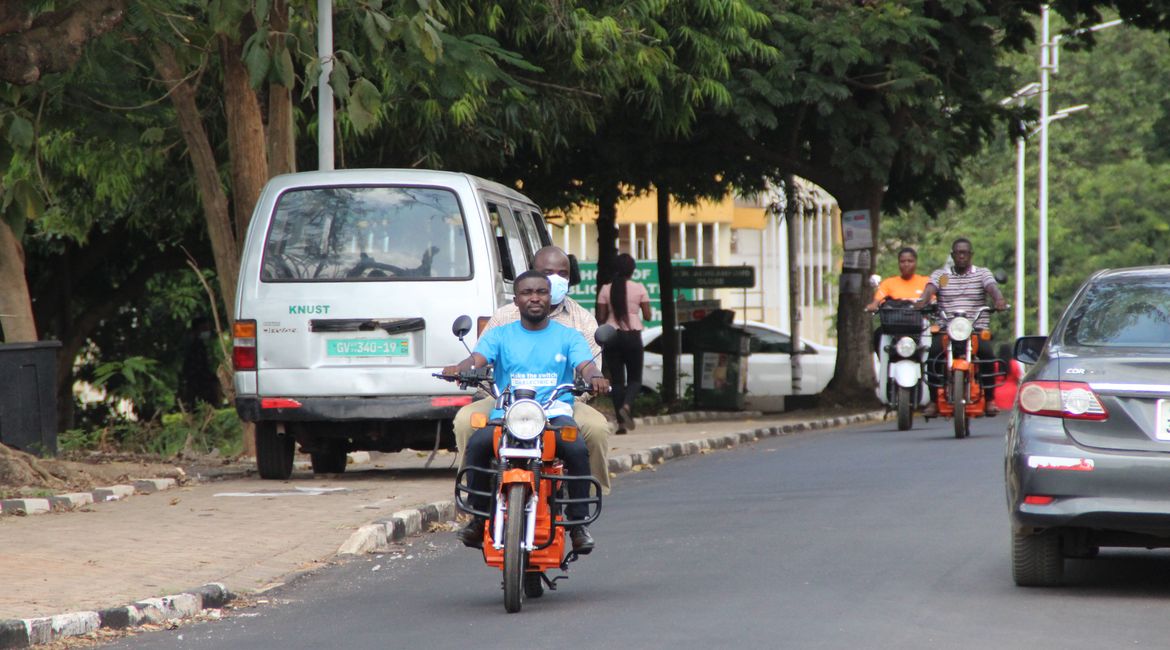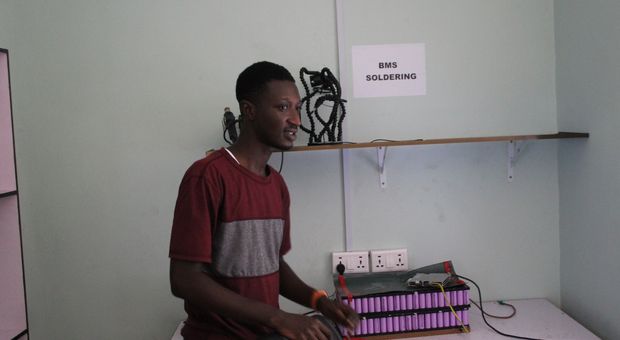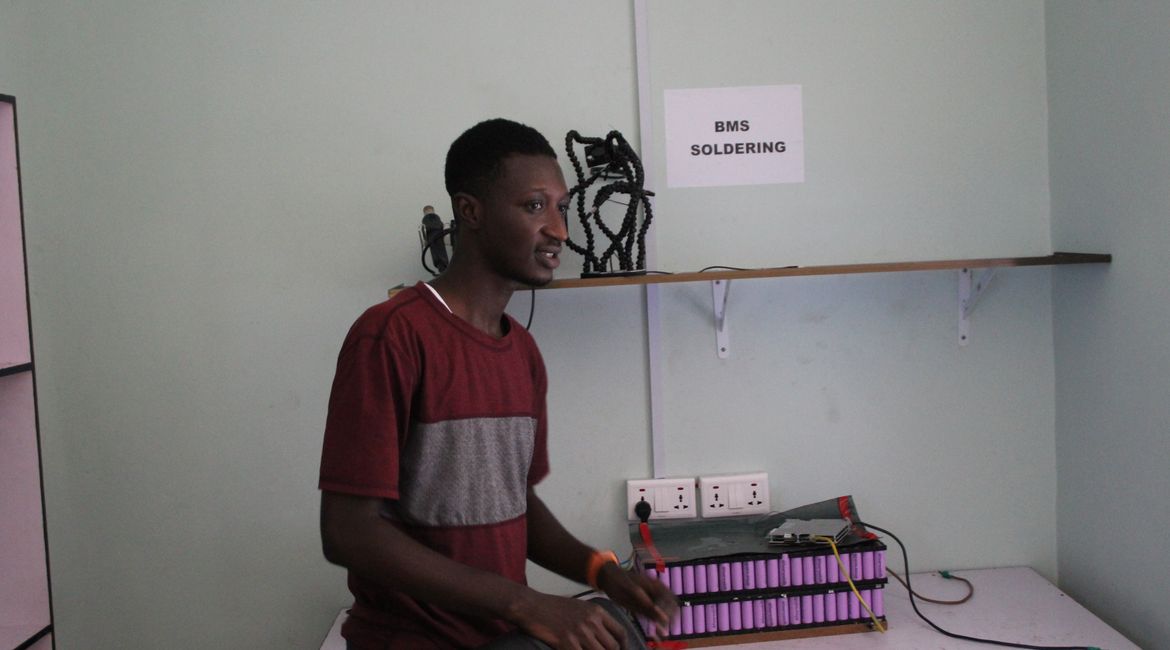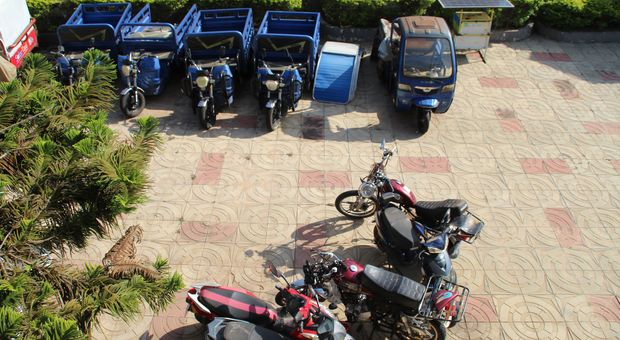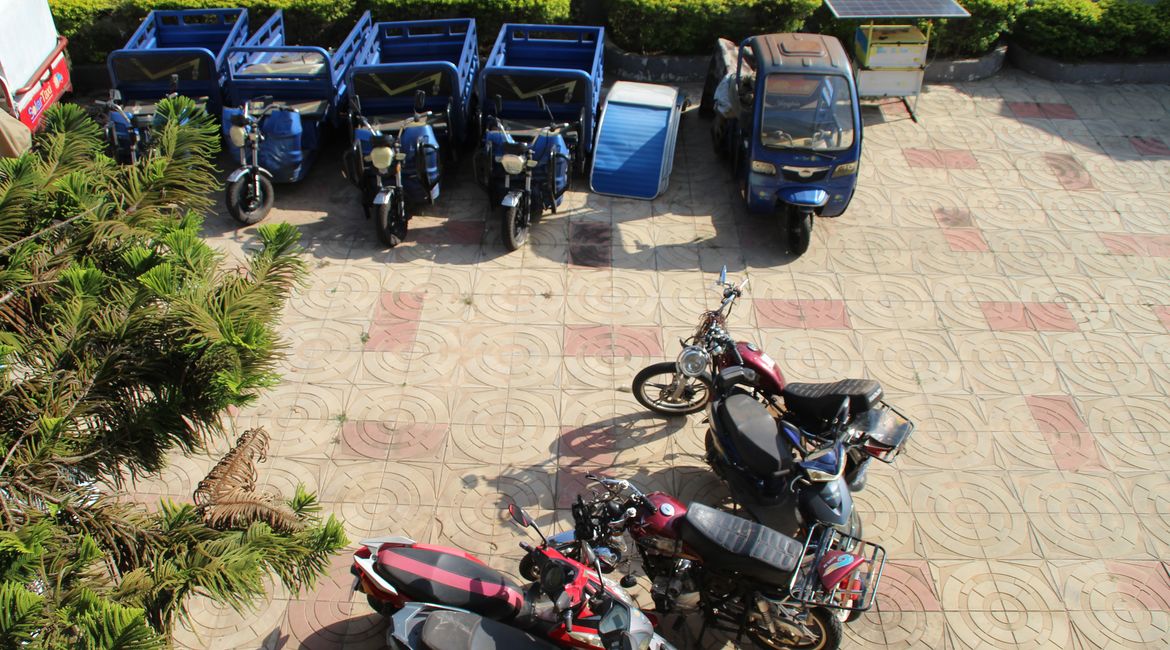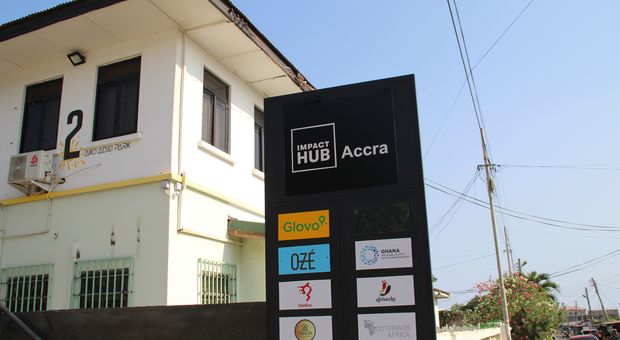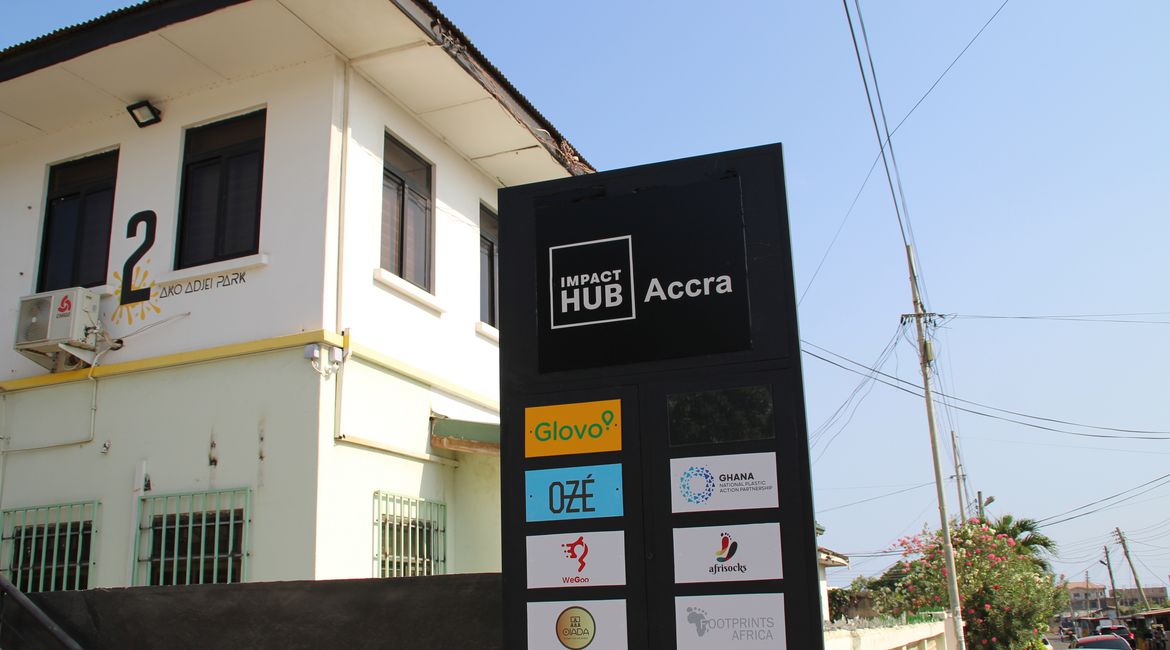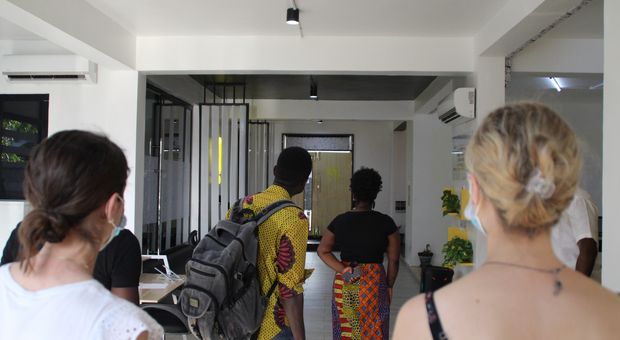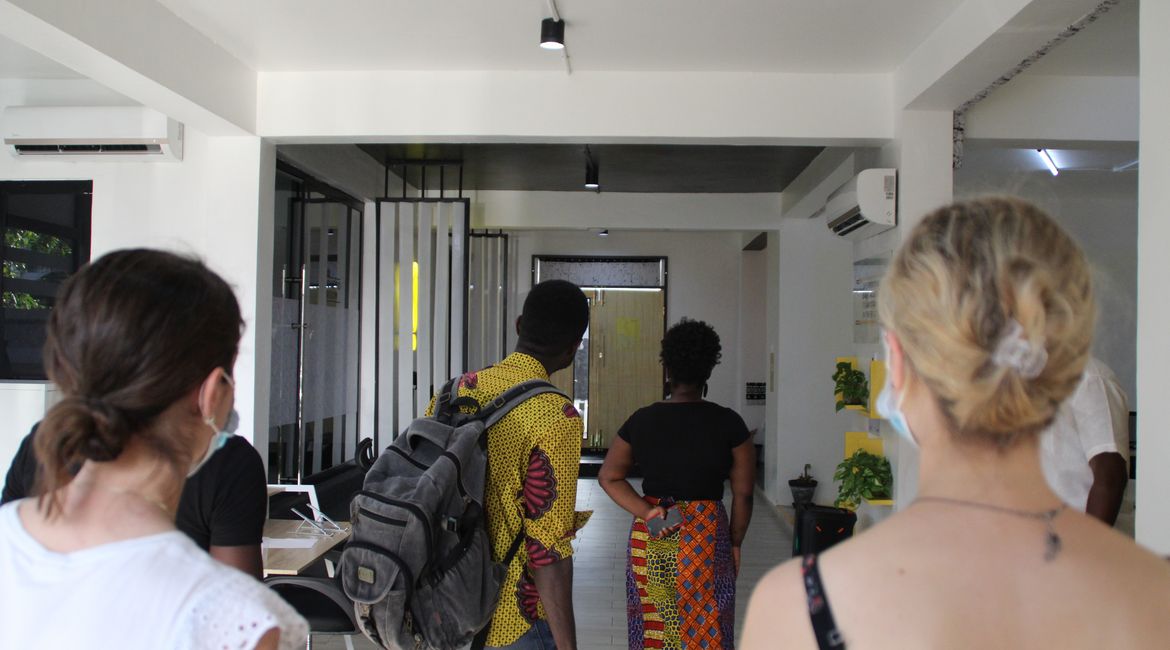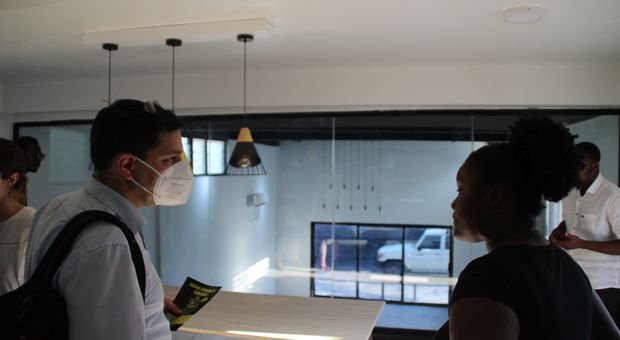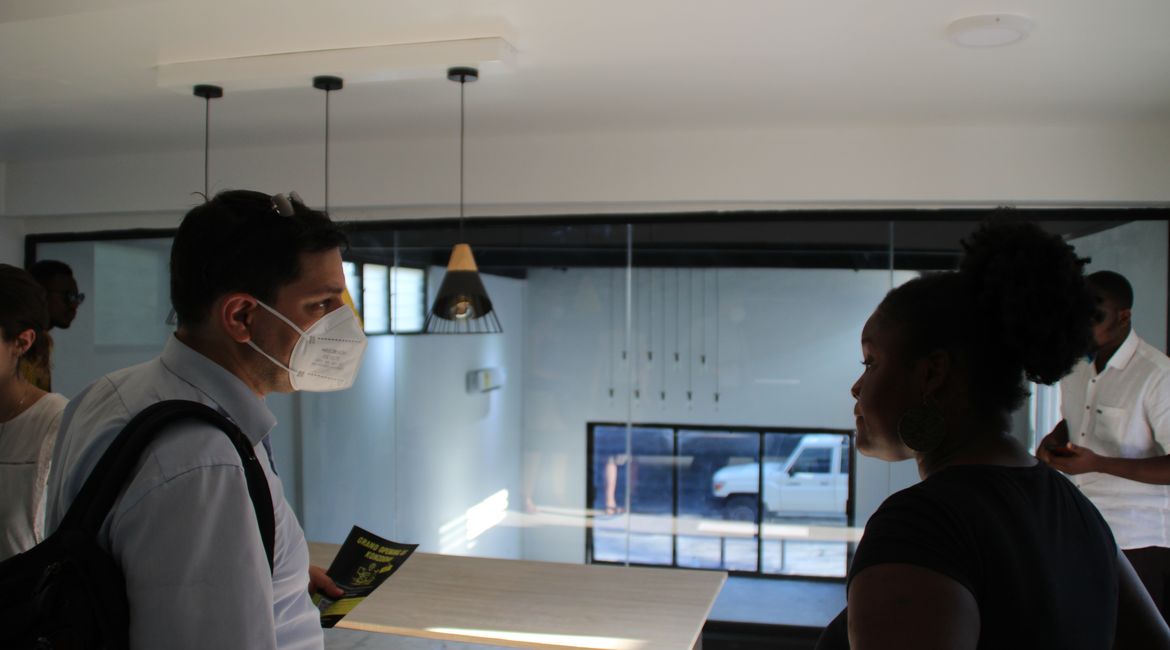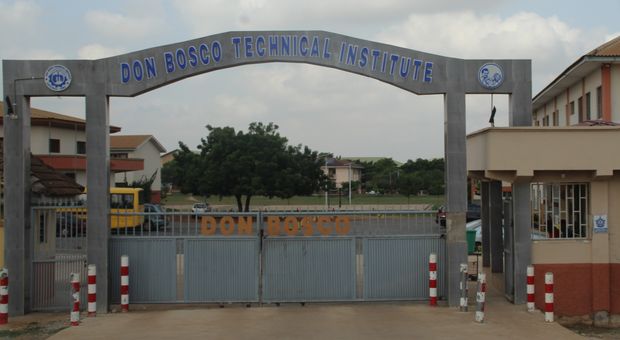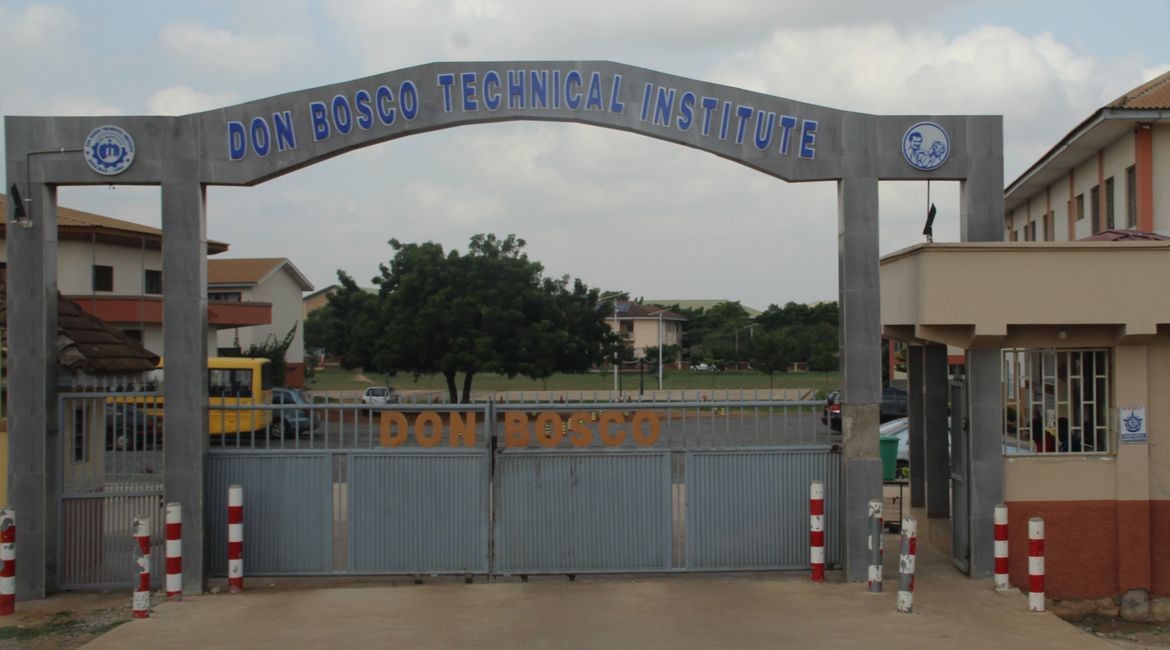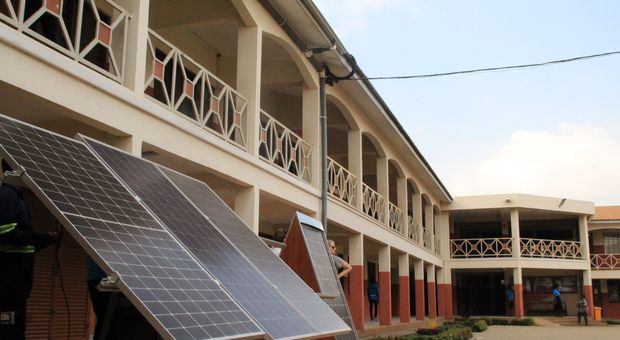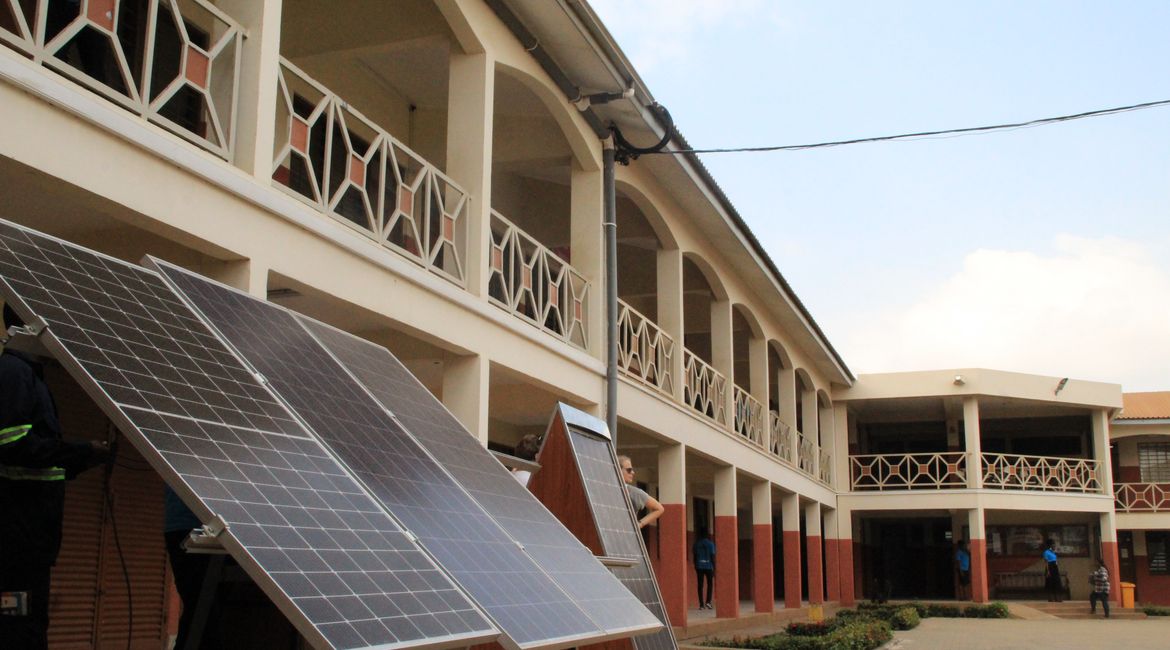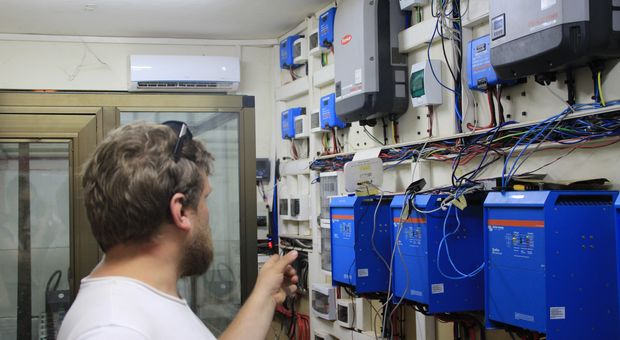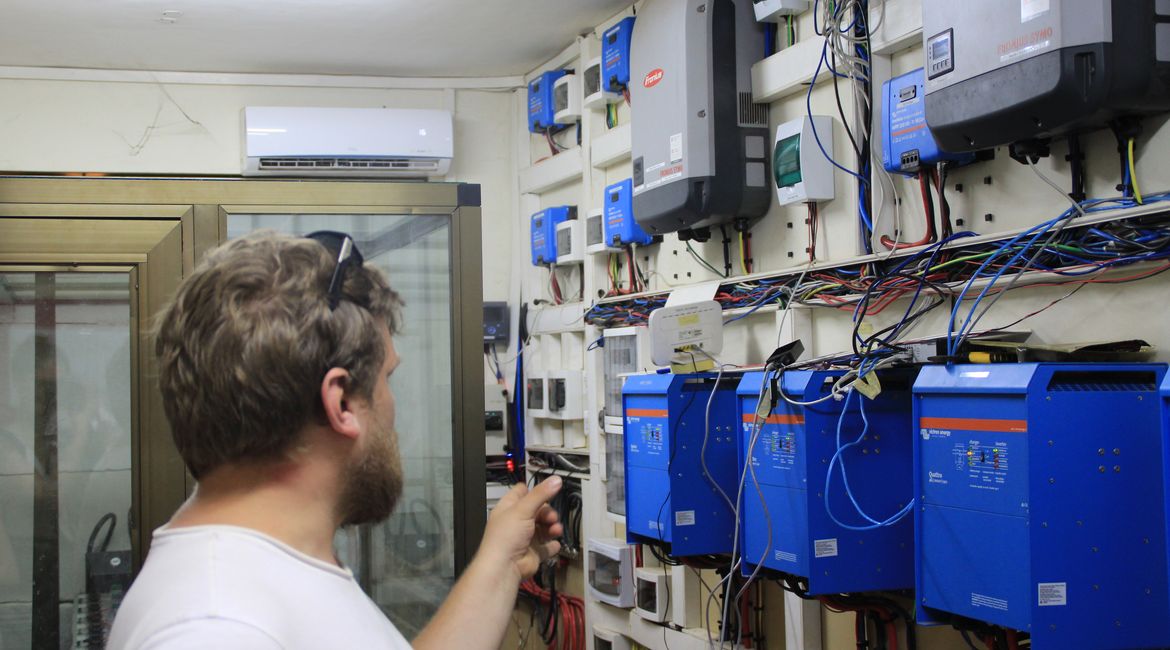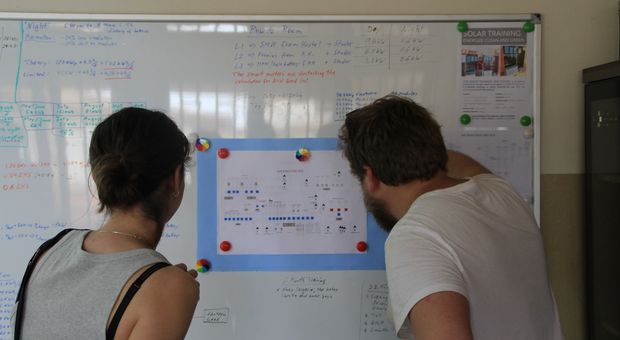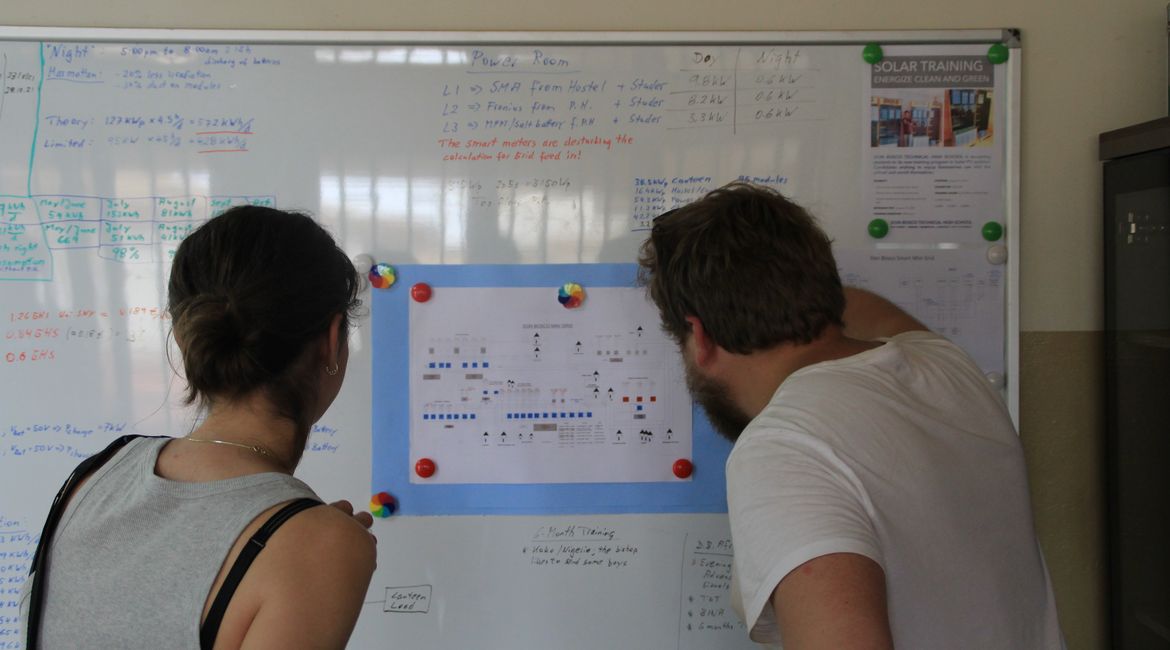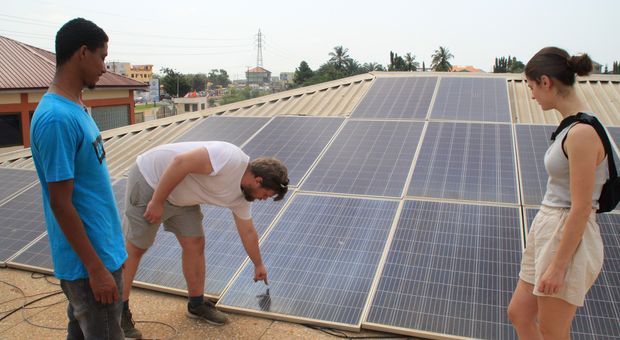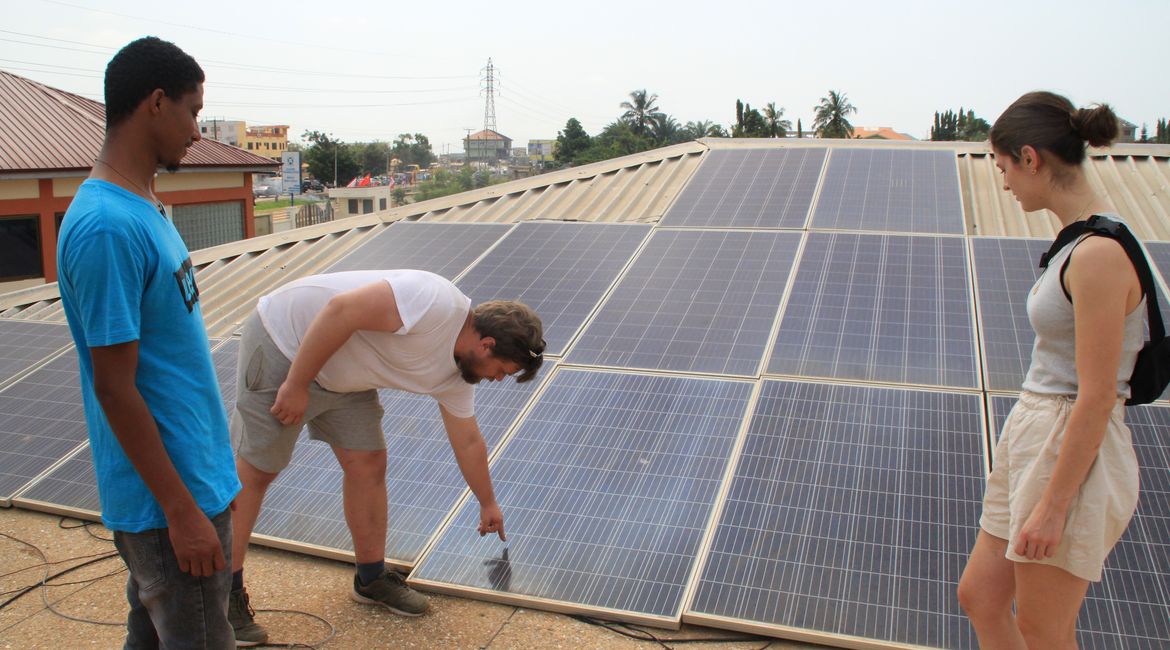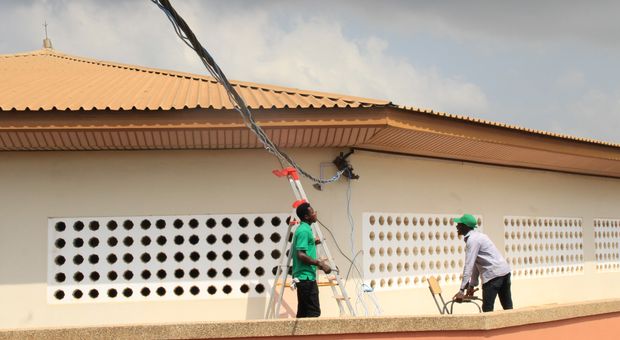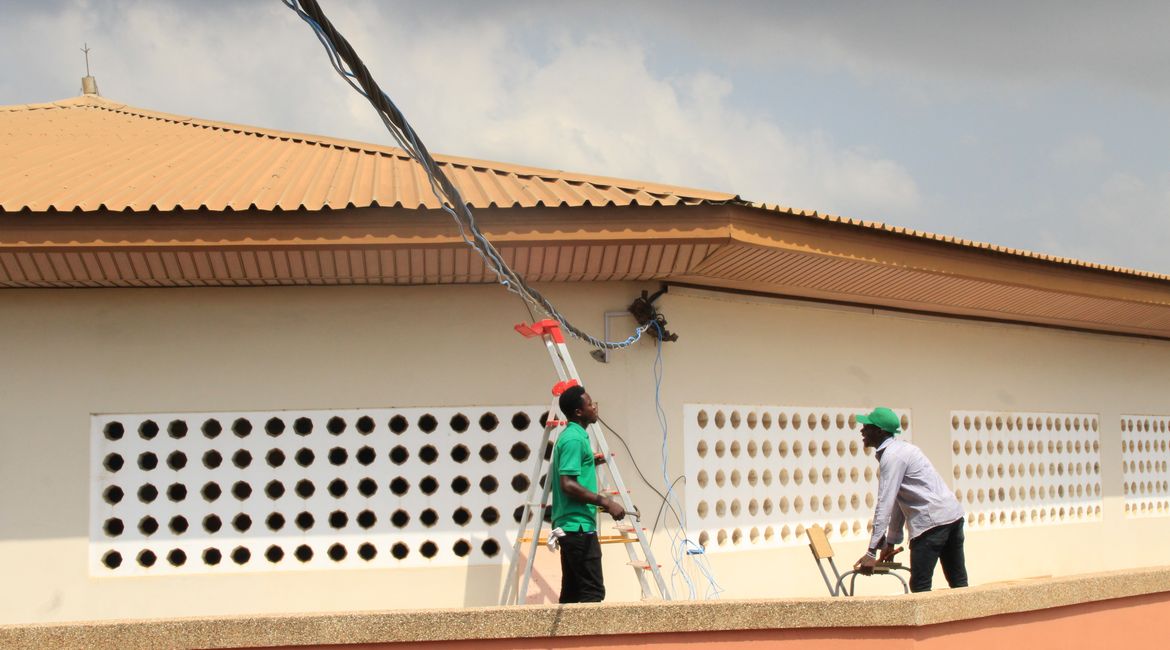Researchers from the Sustainable Technologies Laboratory travel to Ghana
In November, when the temperature is around 30 degrees, the streets in Accra are crowded with cars and motorcycles. Due to the growing population; economic growth, and urbanization, more and more people are moving back and forth every day. The number of diesel engines is considerable. Between clouds of dust and car exhaust, motorcycles flexibly weave their way between the cars stuck in traffic jams, and drivers plan a few extra hours lost each day. But those in a hurry adapt. Motorcycles and scooters have their own dynamics here, which Google Maps has also adapted to: The app calculates the duration of the route separately for motorcycles. To counteract challenges such as air pollution, traffic jams and a lack of infrastructure, Ghana is focusing on e-mobility. With the help of subsidies and international development projects, the switch to low-emission mobility should succeed. Researchers from the Sustainable Technologies Laboratory are focusing on the provision and testing of small electric vehicles such as e-mopeds, e-cargo bikes, and e-bikes, coupled with decentralized energy systems such as solar charging stations and a smart mini-grid. In cooperation with the University of Energy and Natural Resources and the Kwame Nkrumah University of Science and Technology, two projects are being implemented in the sector to aid the transition to light electric vehicles. Close cooperation with the private sector firm Solar Taxi, ensures that job creation is not left out.
Exchange with the Gesellschaft für Internationale Zusammenarbeit (GIZ) and the operators of an industrial park in Tema
As part of the "E-Micromobility in Ghana (EmmGh)" project, funded by the German Federal Ministry for Economic Cooperation and Development (BMZ), the laboratory is implementing electromobility solutions in Ghana together with the "Gesellschaft für Internationale Zusammenarbeit" (GIZ) under the "Invest for Jobs" program. Using solar charging stations and a smart mini-grid, e-mobility is to be made sustainable.
Our first meeting in Ghana took place together with GIZ in the TemaEnclaveProcessing Zone. Here, companies are to set up and push the local economy, as well as create jobs. All parties involved in the project met for the first time on site to discuss the planned mobility concepts for the area. On the part of the Tema Industrial Processing Zone, employees of LMI Holding Limited and the Ghana Free Zones Authority were present. Plans include an e-scooter delivery service using e-mopeds that will be charged at a decentralized solar charging station on site. The mopeds will be used to deliver cafeteria food throughout the industrial enclave. In addition, a transportation service for employeesinside is also planned using e-buses. This electrification with solar energy will save559 t of CO2emissions compared to diesel-powered buses. After the discussions, it was clear to all parties involved that the sustainable change of the transport system in the Industrial Park can only be tackled together. The government also plays an important role in this and in Ghana, it is not easy to get to work in urban areas such as Accra on time without a car, as there is no reliable public transport. The industrial area is still a developing area where different companies have already established themselves. But in between there are still open spaces where a herd of cattle grazes or small stalls with scattered food offers can be found. At the meeting in Tema, we were finally able to get a picture of the initial situation on site and enter an open conversation about the creation of a sustainable future for the Tema Enclave Processing Zone.
Workshop with the University of Energy and Natural Resources (UENR) in Sunyani
On the drive out of Accra, we noticed for the first time how green the landscape in Ghana is. Very long, wide roads stretch all the way to Sunyani. There we could visit the campus of our partner, the University of Energy and Natural Resources (UENR), and talk to the Pro-Vice Chancellor and the professors. The conversation was mainly about further exchange possibilities in joint teaching and further cooperation regarding the implementation of research projects. Afterwards, a workshop took place where we presented the work of the for Sustainabile Technologies Laboratory and our project EmmGh in cooperation with UENR. In this project, our partner university was provided with e-mopeds for research purposes by the local start-up "Solar Taxi". A motorcycle which was converted from a classic combustion engine to an electric drive was also demonstrated and handed over to the faculty for testing and teaching purposes. This work could already depict a partial success of our project. Solar Taxi has been dealing with the topic of e-mobility and is the foremost firm involved in electromobility in Ghana. Their work includes electric cars but also the conversion of classic combustion motorcycles to battery powered vehicles or the assembly of e-mopeds. Solar Taxi is not only a pioneer in the field of e-mobility in Ghana, but also in terms of job opportunities for women in STEM. Already 90% of the engineers are women and furthermore there are continuing salary payments for all female employees on maternity leave.
Meeting with The Energy Centre of Kwame Nkrumah University of Science and Technology (KNUST) in Kumasi
On the main campus of KNUST with its approximately 42,000 students, Prof. Dr.-Ing. Severengiz (Sustainable Technologies Laboratory, Bochum University of Applied Sciences) and Professor Ellis Owusu-Dabo (Pro-Vice Chancellor, College of Engineering, KNUST) signed the Memorandum of Understanding for a good cooperation between the two institutions. KNUST in Kumasi would also like to expand its research in the field of e-mobility and will receive four e-mopeds from the Solar Taxi company for research purposes from the project. To ensure a sustainable power supply for the e-vehicles, a solar charging station from the Berlin-based company SunCrafter will also be installed on the KNUST premises. As it is an off-grid solution, the station is not dependent on the national power supply, but on the volatility of the sun, which is not a problem in regions such as Sub-Saharan Africa. With the help of this station, students will also be made aware of the importance of low emission energy supply and be trained in mobility and decentralized energy systems. The meeting also discussed other joint project opportunities. In particular, the current poor infrastructure and legal issues regarding electric vehicles in Ghana was debated and the need for governmental frameworks was pointed out to ensure the development of a robust electromobility sector.
Brainstorming meeting on future collaboration with the Impact Hub in Accra
From Kumasi, we took the same route back to Accra to meet with Impact Hub and Siemens Foundation. Our collaboration started late last year at the WACEE Conference in Ghana, where we hosted a joint workshop within our previous project “MoNaL”. The Impact Hub, which is in the coastal district of Osu, has a large network of start-ups where many innovative ideas originate. The goal of this meeting was to exchange and brainstorm about common project opportunities in the field of electric mobility. Currently, the Impact Hub is developing a project together with the Siemens Foundation for the development of e-cargo bikes in Ghana. This project is intended to contribute to a more sustainable mobility offer and enable sustainable cargo transport. During the project, customer experiences and demands regarding e-cargo bikes will be investigated at the same time, as well as research regarding acceptance among the Ghanaian population. Studies in Ghana have shown that interest in such ride options is growing. However, more research needs to be done on the acceptance of such cargo bikes and their adaptation to the local environment.
Visit to the Don Bosco Technical Institute in Tema
A special academic partner for our lab is the Don Bosco Technical Institute in Tema, which TVET training for the education of students to become engineers. Our focus is put on renewable energies like photovoltaics and e-mobility, which is led by Father Christoff Baum, head of the Solar and Renewable Energy Centre. In the laboratory, we have been working for some time on the project "Mobility sustainably through the lifecycle (MoNaL)" from the funding program "ExportinitiativeUmwelttechnologien" of the German Federal Ministry for the Environment, Nature Conservation and Nuclear Safety (BMU). On our tour of the school's campus, we could already spot PV panels on every building. This is because the buildings are connected to form a solar mini grid, so that already 95 percent of the power supply for the entire campus can be provided by solar energy. In this intelligent system, power generation and use can be controlled and monitored. In addition, different types of PV panels and storage options for the electricity are being tested and the knowledge is being taught to the students in an application-oriented manner. As part of the "MoNaL" export initiative, two Kumpan e-mopeds and two e-cargo bikes will be made available to the students for learning and teaching purposes in the field of e-micromobility. Both types of vehicles are offered as a sharing service for students and staff. In this way, Don Bosco Tech is already a small self-sufficient island of sustainability in Tema. With the help of this decentralization, more of these decentralized projects can be established in the future and a transformative character for the entire system can be created.


